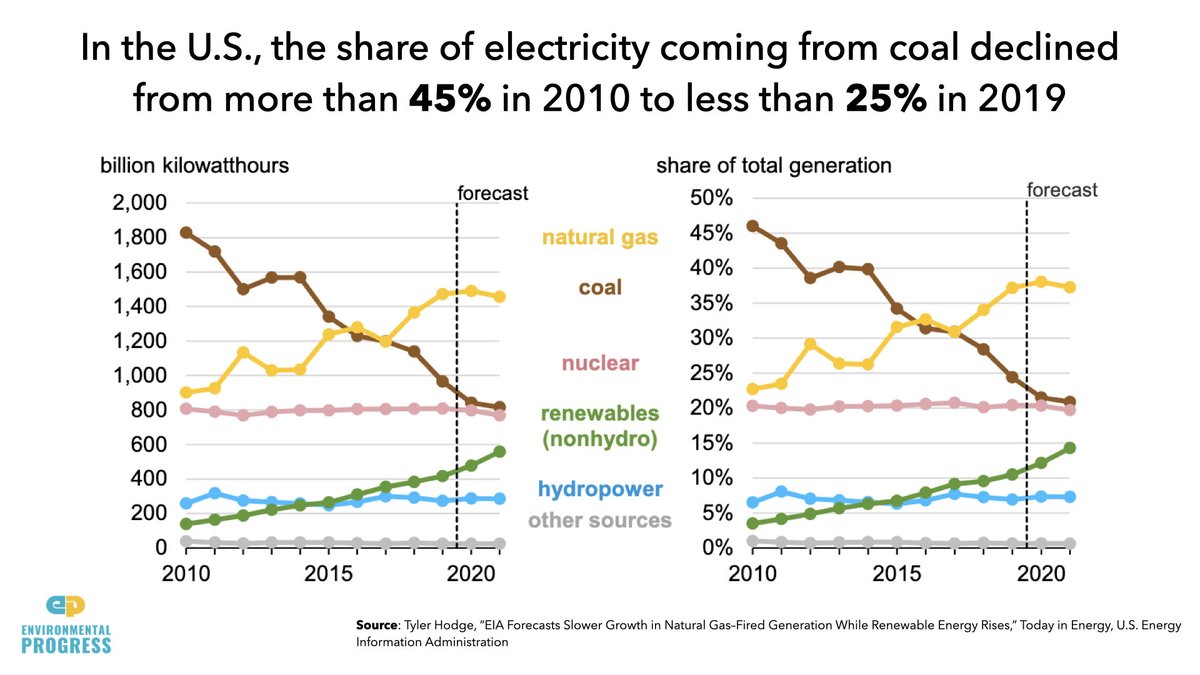
As a lifelong environmental activist I am horrified that some young people say they may not have children because of climate change
The truth is that *most* trends relating to climate change & the environment are headed in the right direction!
THREAD
environmentalprogress.org/apocalypse-nev…
The truth is that *most* trends relating to climate change & the environment are headed in the right direction!
THREAD
environmentalprogress.org/apocalypse-nev…
First, some context: humans are doing better than ever:
- extreme poverty declined from 44% to 10% btwn 1981 - 2015;
- infant mortality declined from 43% to just 4%!
- Life expectancy rose from 40 to 70
- Human population growth rate has crashed; we're having fewer children



- extreme poverty declined from 44% to 10% btwn 1981 - 2015;
- infant mortality declined from 43% to just 4%!
- Life expectancy rose from 40 to 70
- Human population growth rate has crashed; we're having fewer children
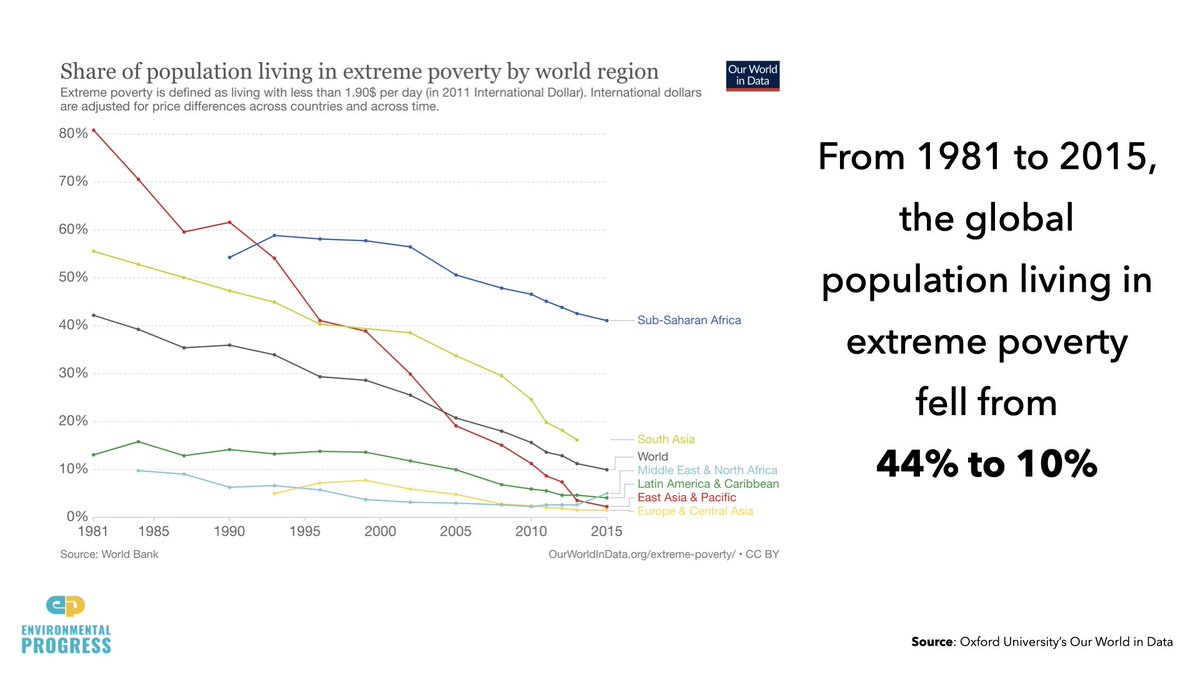
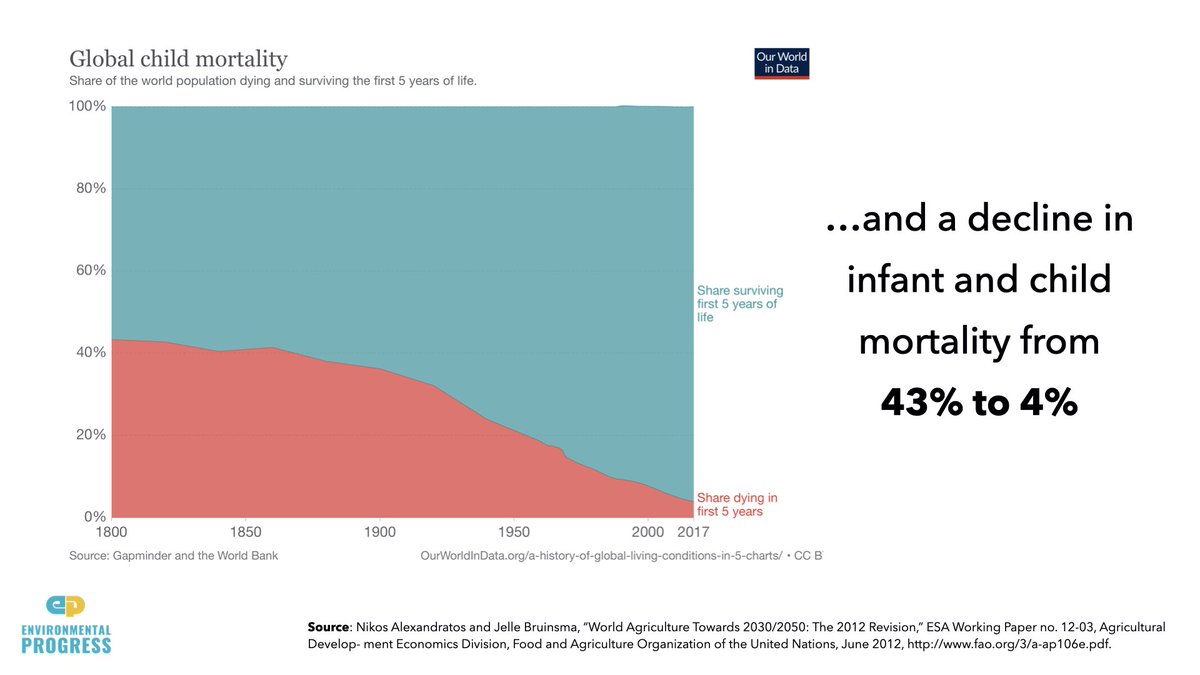
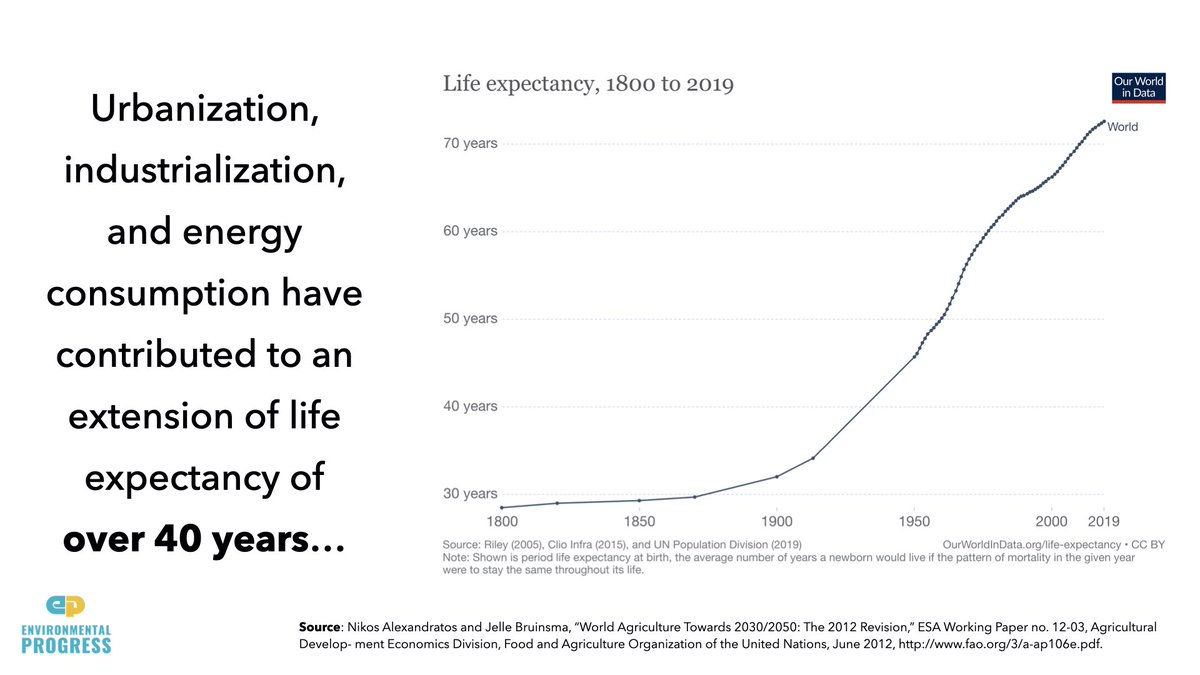
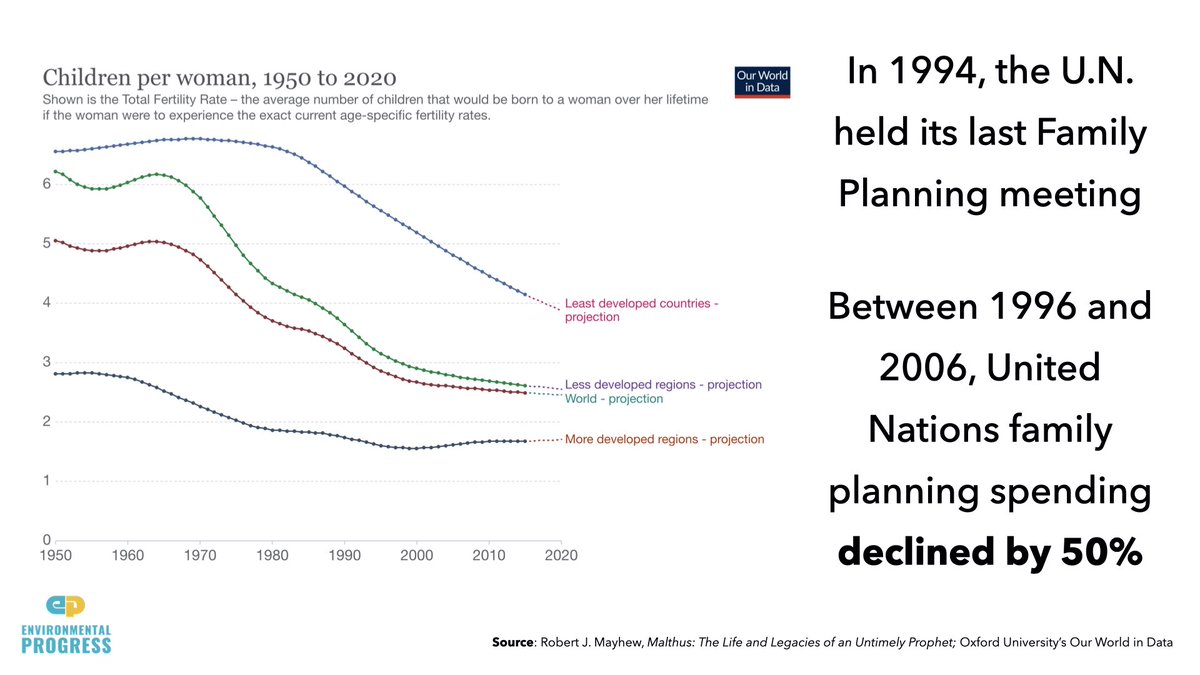
We are more resilient than ever:
- Deaths from natural disasters declined over 90%
- We produce 25% more food than we need — our largest surpluses in history
And there is no scientific scenario for either of those trends to reverse themselves, even with high levels of warming

- Deaths from natural disasters declined over 90%
- We produce 25% more food than we need — our largest surpluses in history
And there is no scientific scenario for either of those trends to reverse themselves, even with high levels of warming
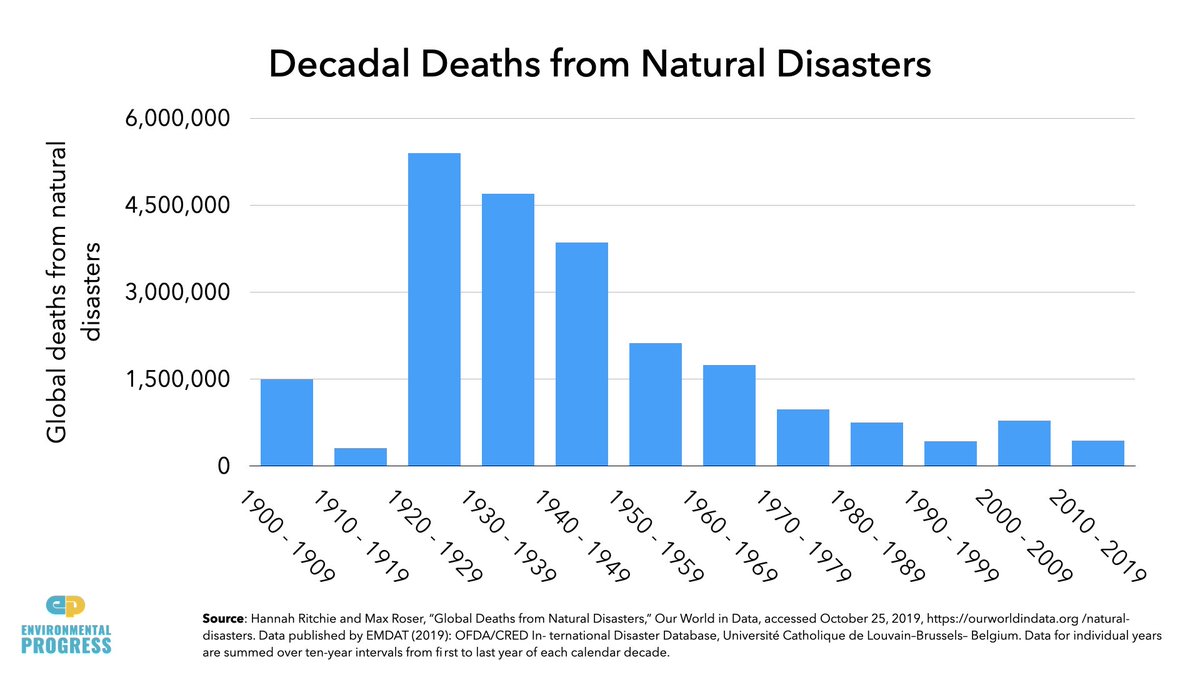
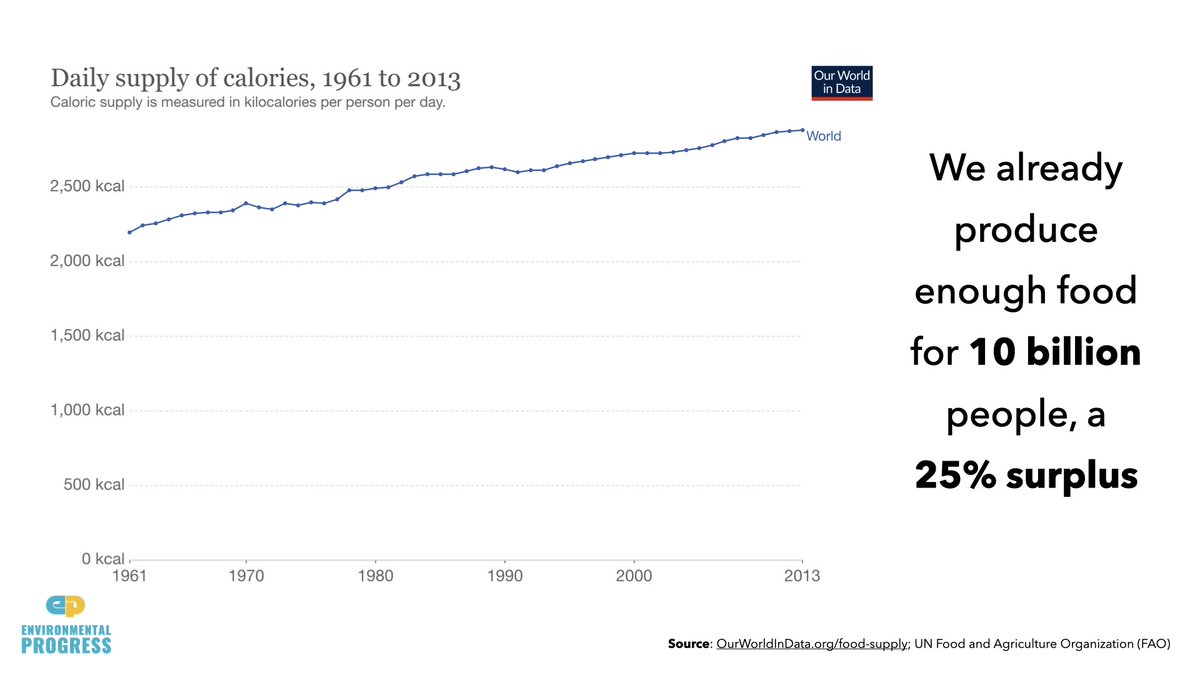
It's true that hurricanes and other natural disasters are causing more economic damage, but that increase can be entirely explained by increased wealth 

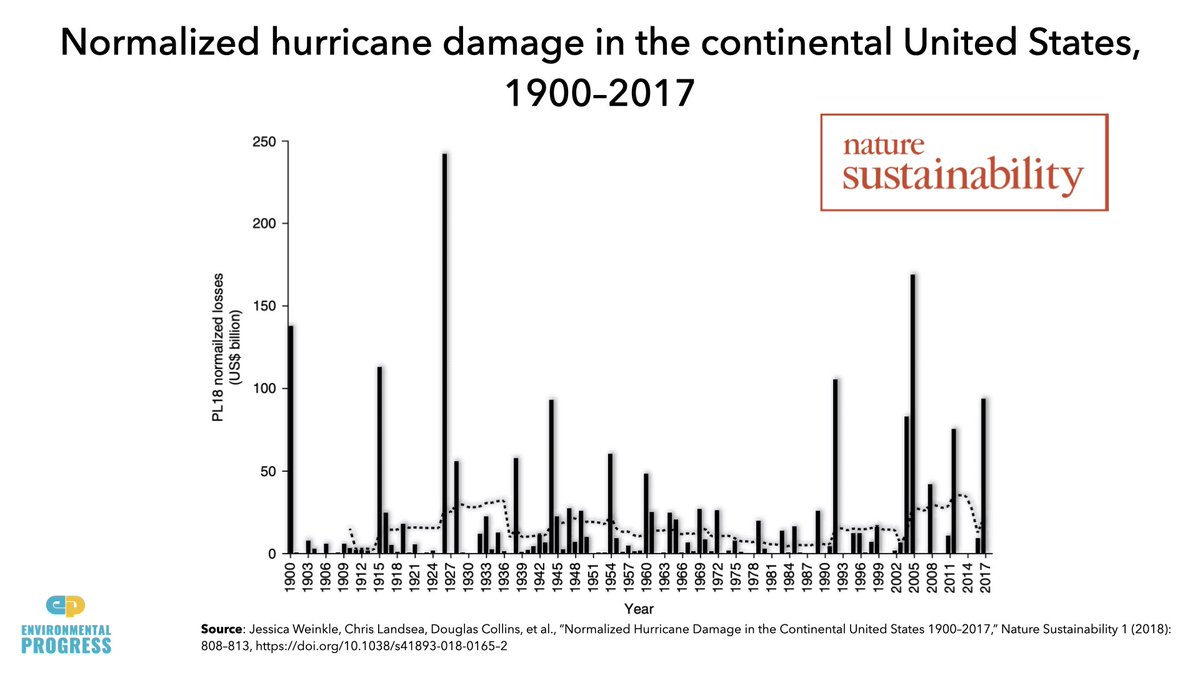
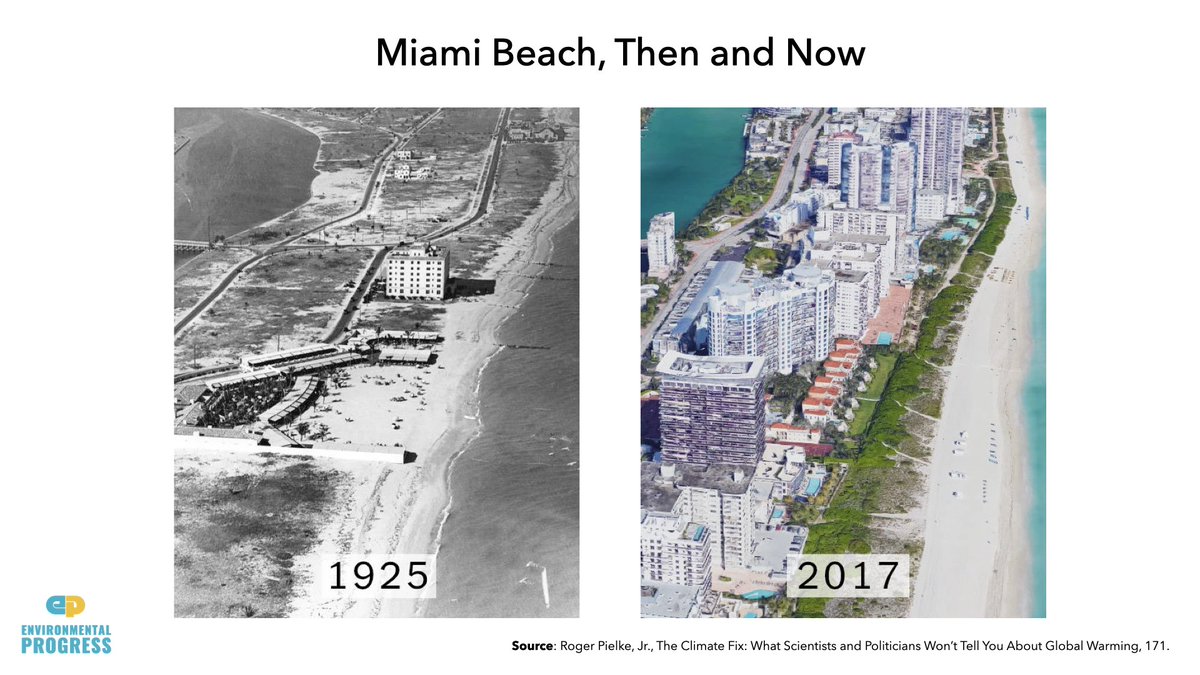
Deaths from natural disasters are at their lowest point in 120 years.
Just 2,900 people died from natural disasters in the first half of 2020, which is far lower than the average figures for the last decade.
forbes.com/sites/michaels…
Just 2,900 people died from natural disasters in the first half of 2020, which is far lower than the average figures for the last decade.
forbes.com/sites/michaels…
Neither the United Nations Intergovernmental Panel on Climate Change (IPCC) nor any other reputable scientific body predicts a reversal in the long-term trend of declining deaths, even if temperatures rise another three degrees or more.
“If you read IPCC reports, there’s no hint that we will be overwhelmed and incapable of responding,” notes leading expert @RogerPielkeJr
“Even under the most extreme scenarios of climate change, future disasters will look a lot like today’s.”
“Even under the most extreme scenarios of climate change, future disasters will look a lot like today’s.”
@RogerPielkeJr The US government’s National Oceanic and Atmospheric Administration (NOAA) predicts the maximum intensity of Atlantic hurricanes and tropical storms will rise 5% in the 21st Century, but their frequency will decline 25%.
gfdl.noaa.gov/global-warming…
gfdl.noaa.gov/global-warming…
@RogerPielkeJr “Hurricanes in the future may be more intense than today’s hurricanes,” said Pielke, “but in the context of a 90% reduction in vulnerability, our disaster preparedness dwarfs the change in whatever your favorite hurricane metric is.”
@RogerPielkeJr What about fires?
- Recent fires in California prove that well-managed forests survive high-intensity fires
- Research finds that the only statistically significant factors for the frequency & severity of fires were population and proximity to development.



- Recent fires in California prove that well-managed forests survive high-intensity fires
- Research finds that the only statistically significant factors for the frequency & severity of fires were population and proximity to development.
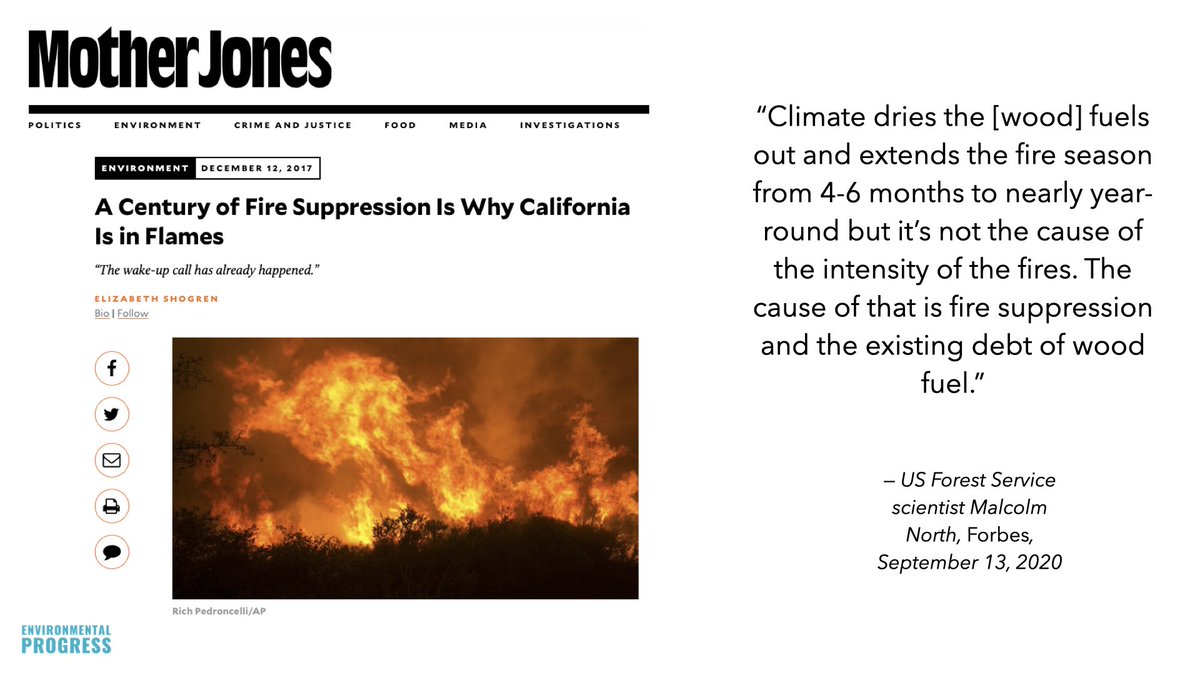
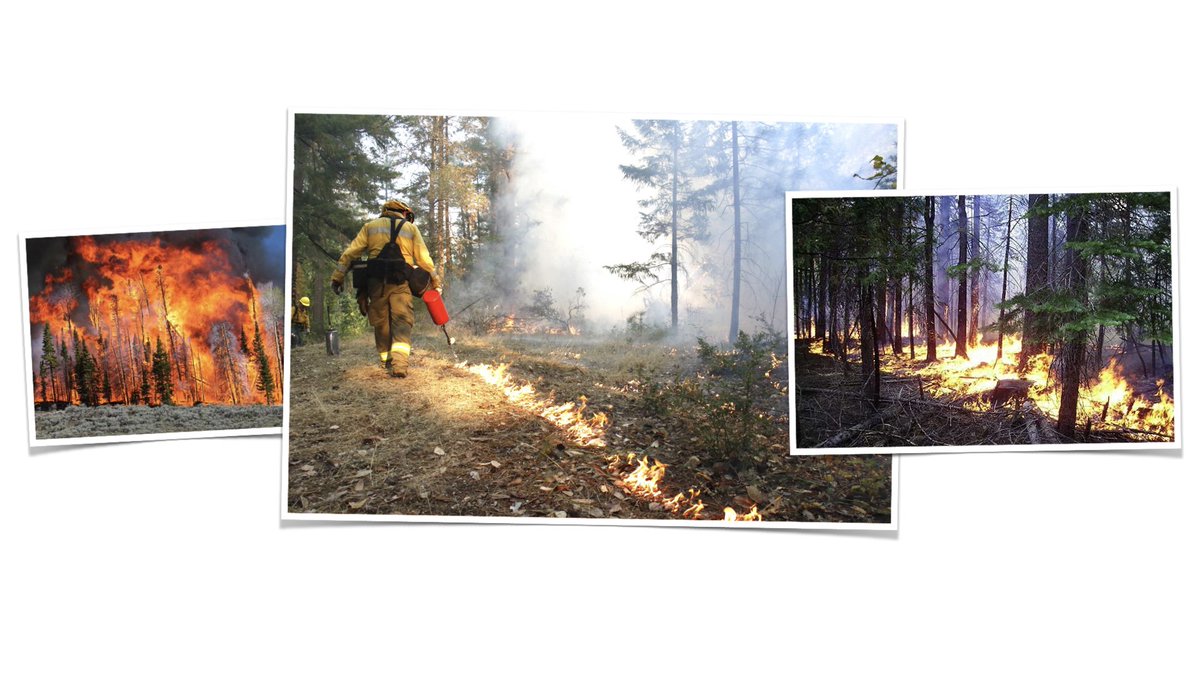
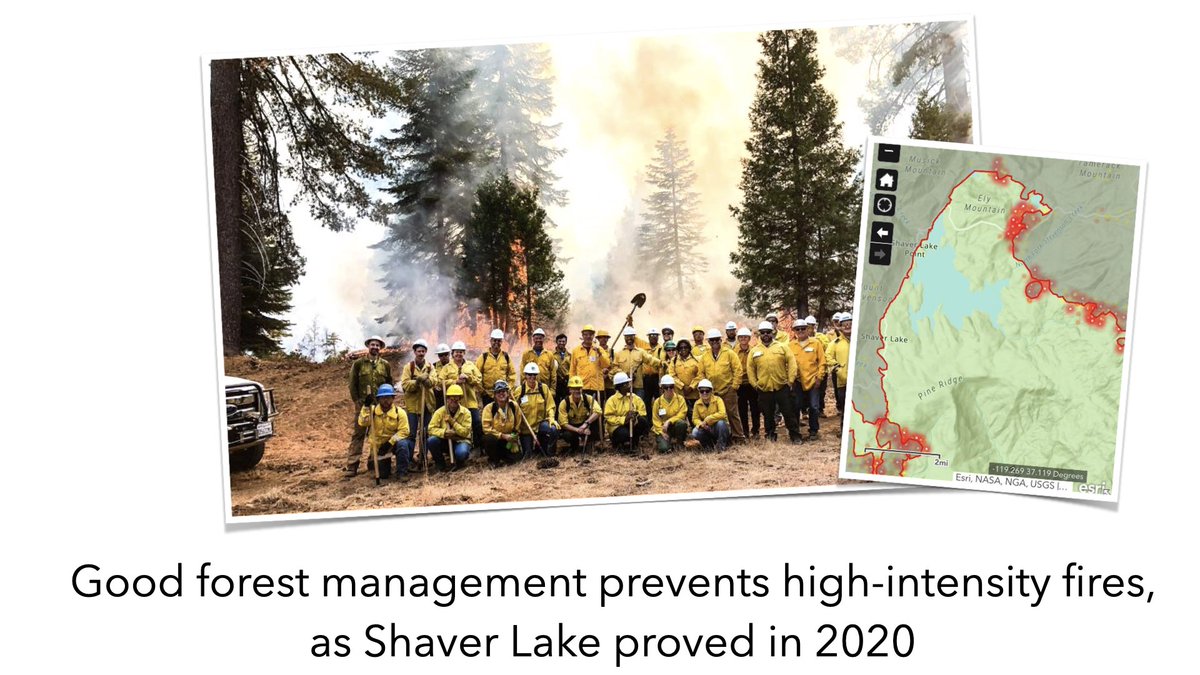
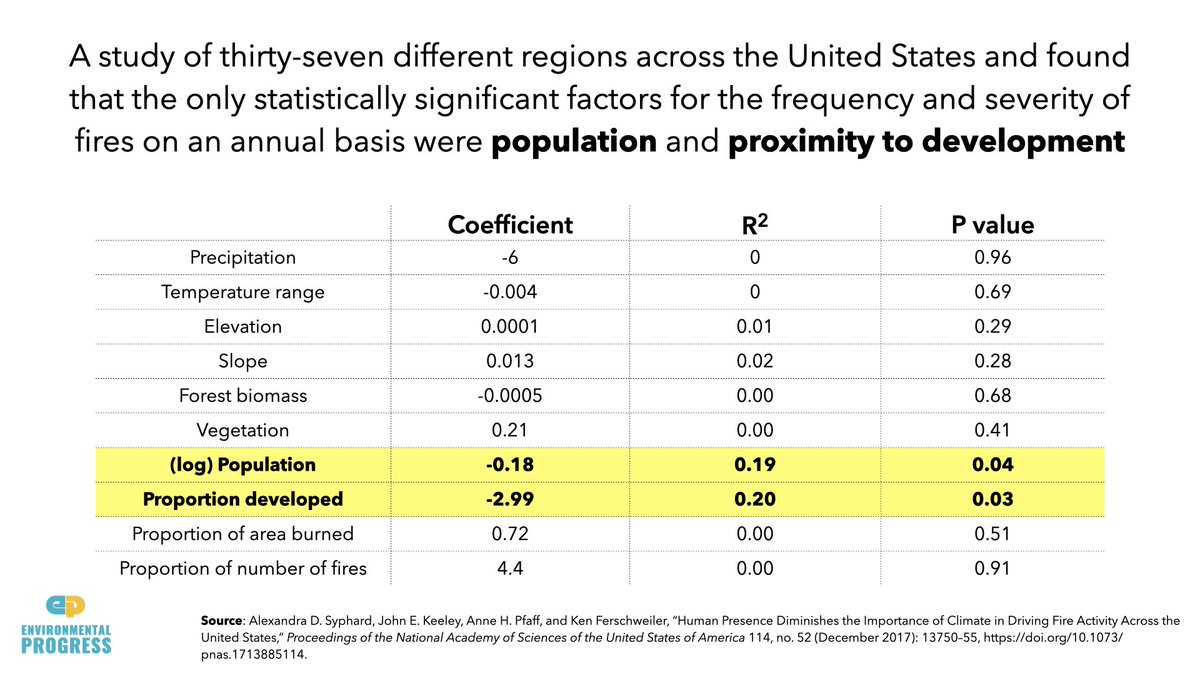
@RogerPielkeJr What about sea level rise?
It's the climate impact that worries me the least
Even if IPCC’s prediction of 0.6 meters (~2 feet) by 2100 under-estimates the change, the slow pace gives time to adapt
And the Netherlands proves that nations thrive even at 7 meters below!

It's the climate impact that worries me the least
Even if IPCC’s prediction of 0.6 meters (~2 feet) by 2100 under-estimates the change, the slow pace gives time to adapt
And the Netherlands proves that nations thrive even at 7 meters below!
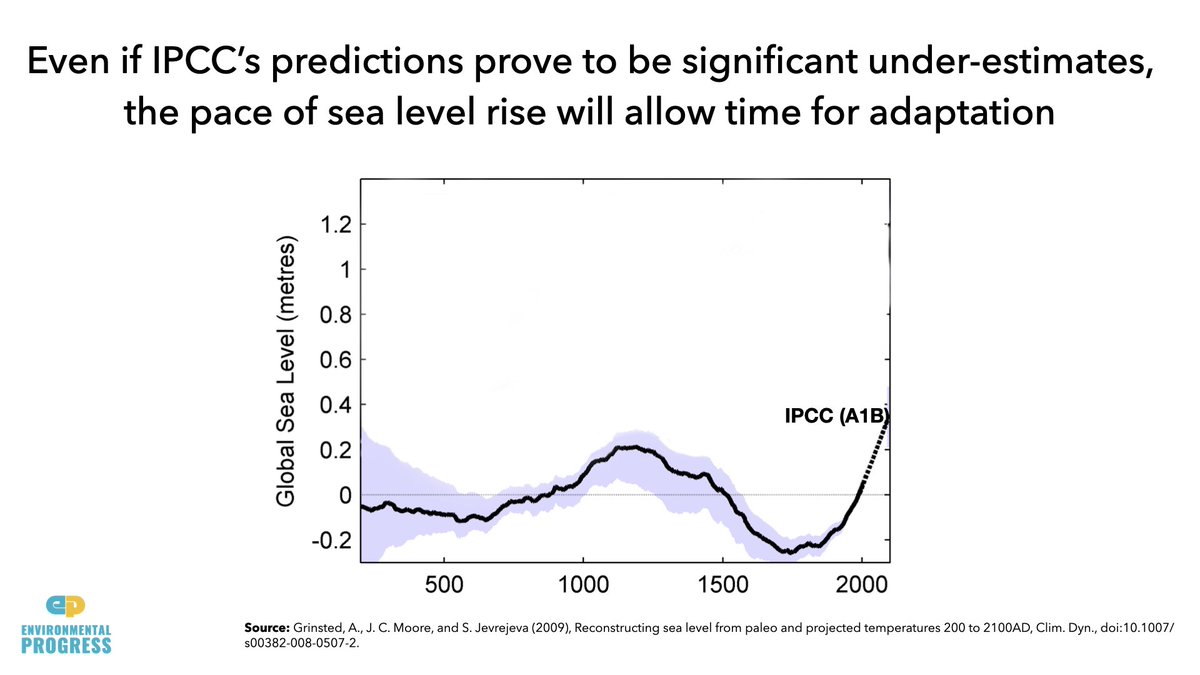
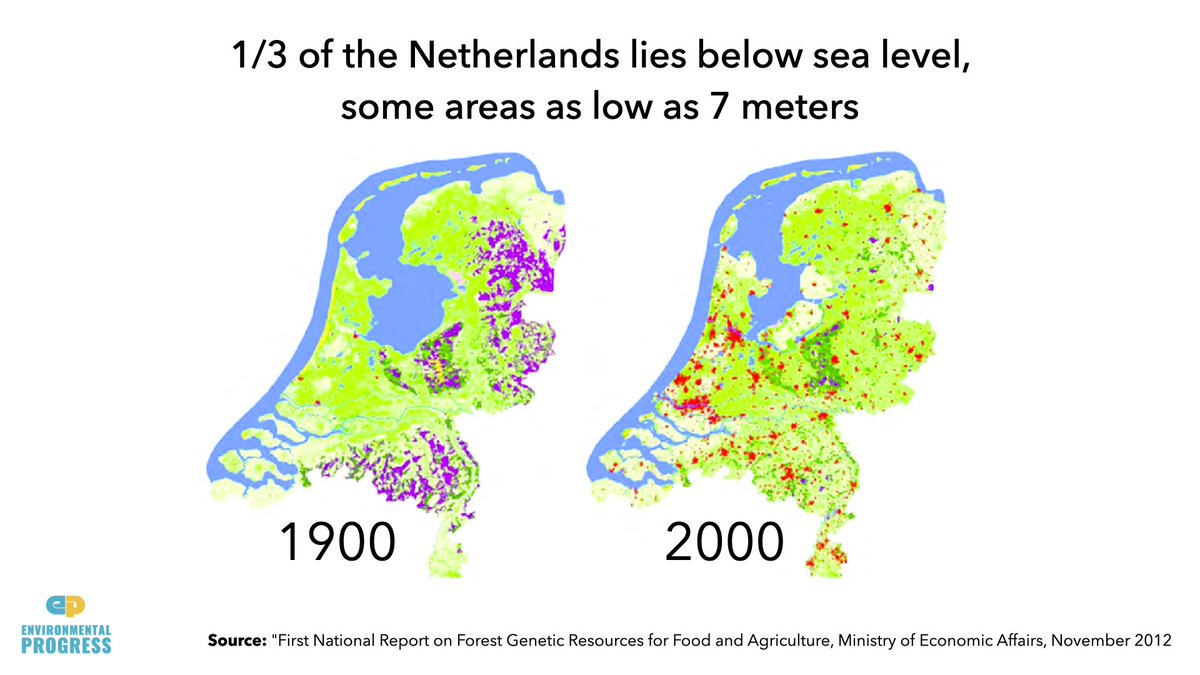
@RogerPielkeJr What about the risk of climate catastrophe from crossing tipping points?
The best book on the subject ranked climate catastrophe risk lowest in terms of fatalities & probabilities compared to other risks eg wars, disease, volcanoes, tsunamis, asteroids
amazon.com/Global-Catastr…
The best book on the subject ranked climate catastrophe risk lowest in terms of fatalities & probabilities compared to other risks eg wars, disease, volcanoes, tsunamis, asteroids
amazon.com/Global-Catastr…
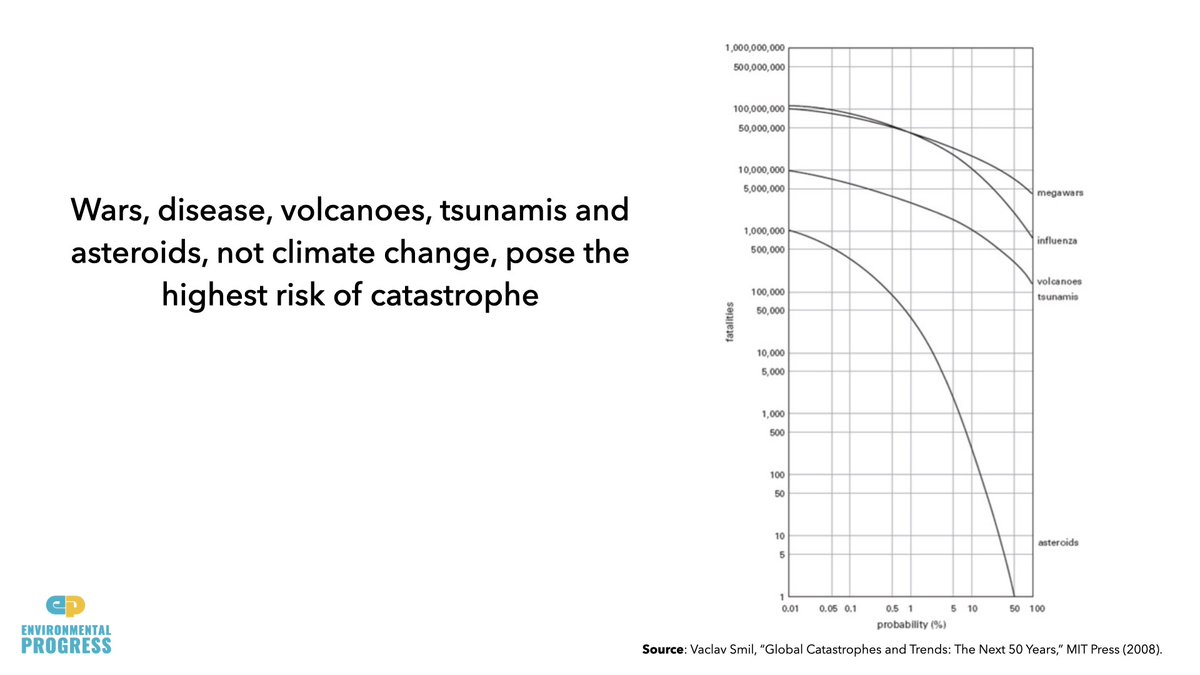
@RogerPielkeJr We still have big environmental problems:
- Wild animal populations declined 50% since 1970
- Critical habitat still at risk in developing world
- Humans use a shocking 25% of Earth's ice-free land surface for cattle pasture



- Wild animal populations declined 50% since 1970
- Critical habitat still at risk in developing world
- Humans use a shocking 25% of Earth's ice-free land surface for cattle pasture
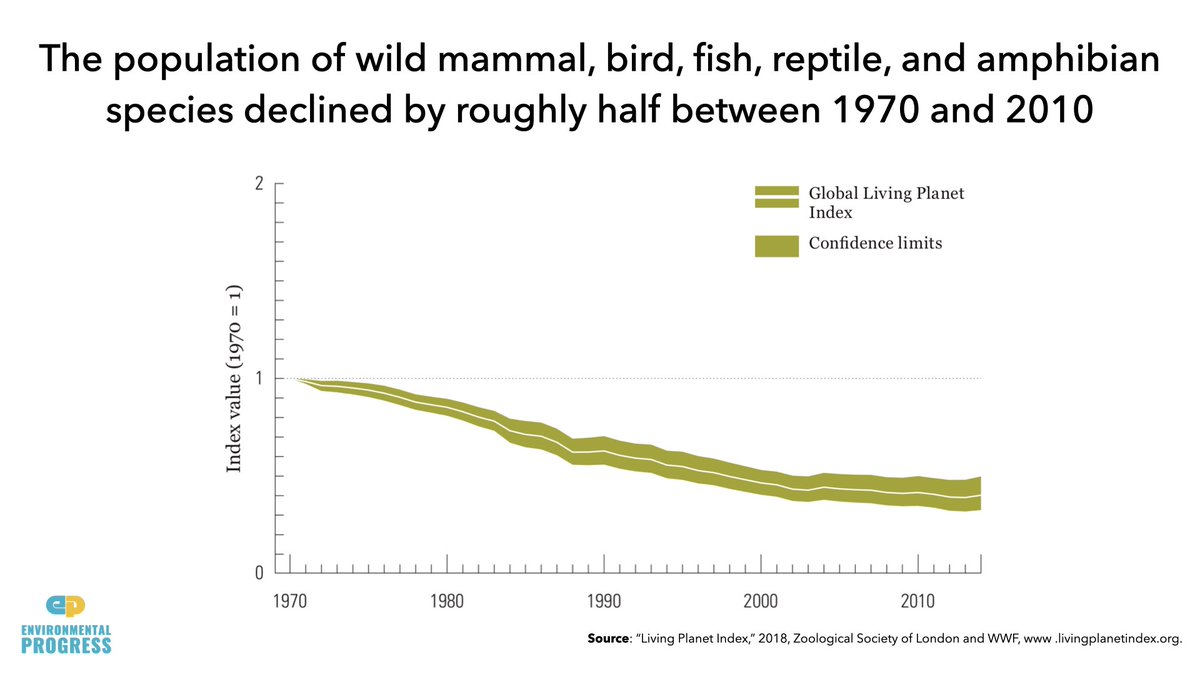
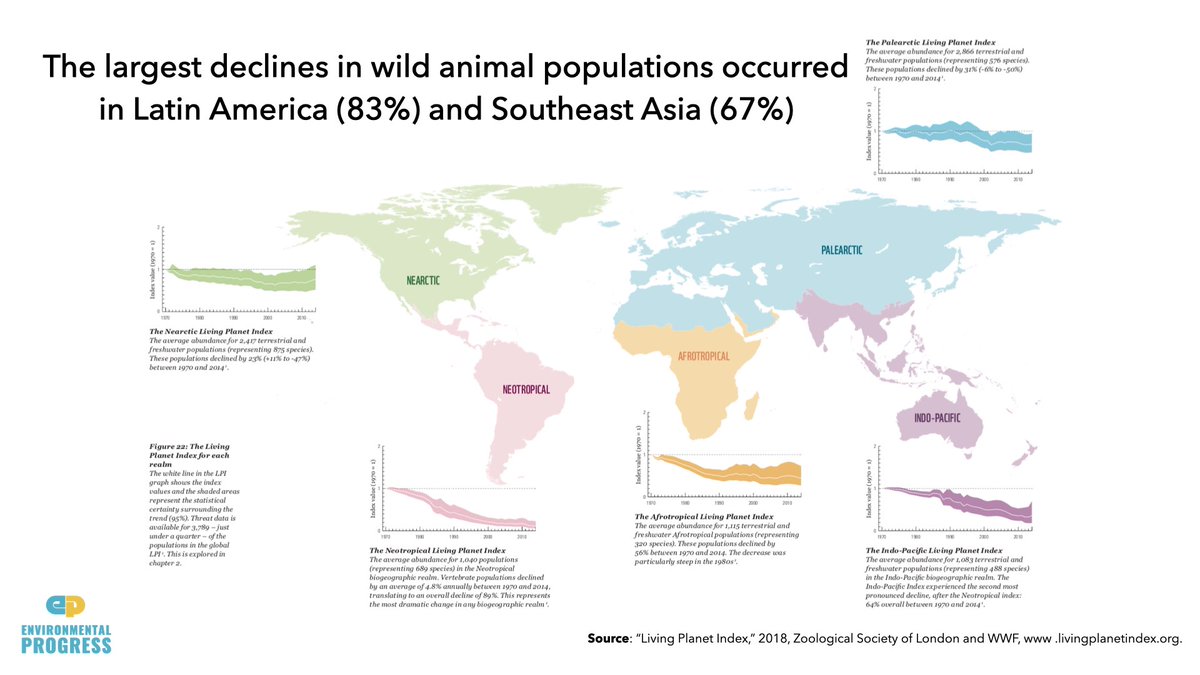
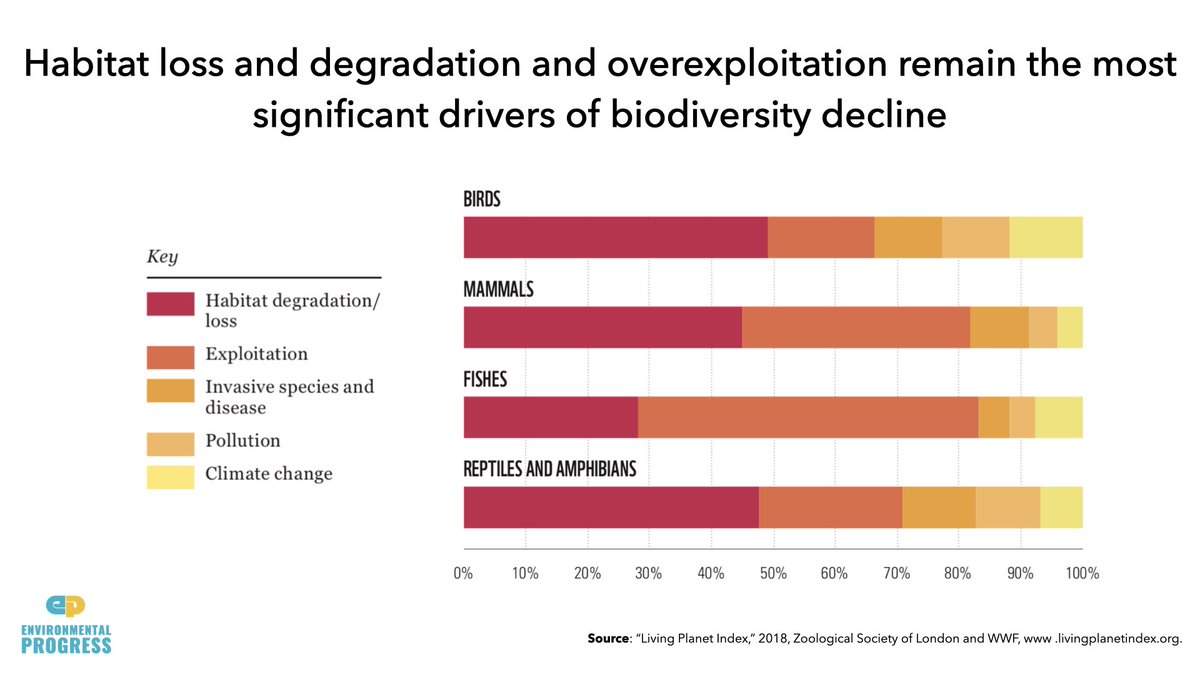
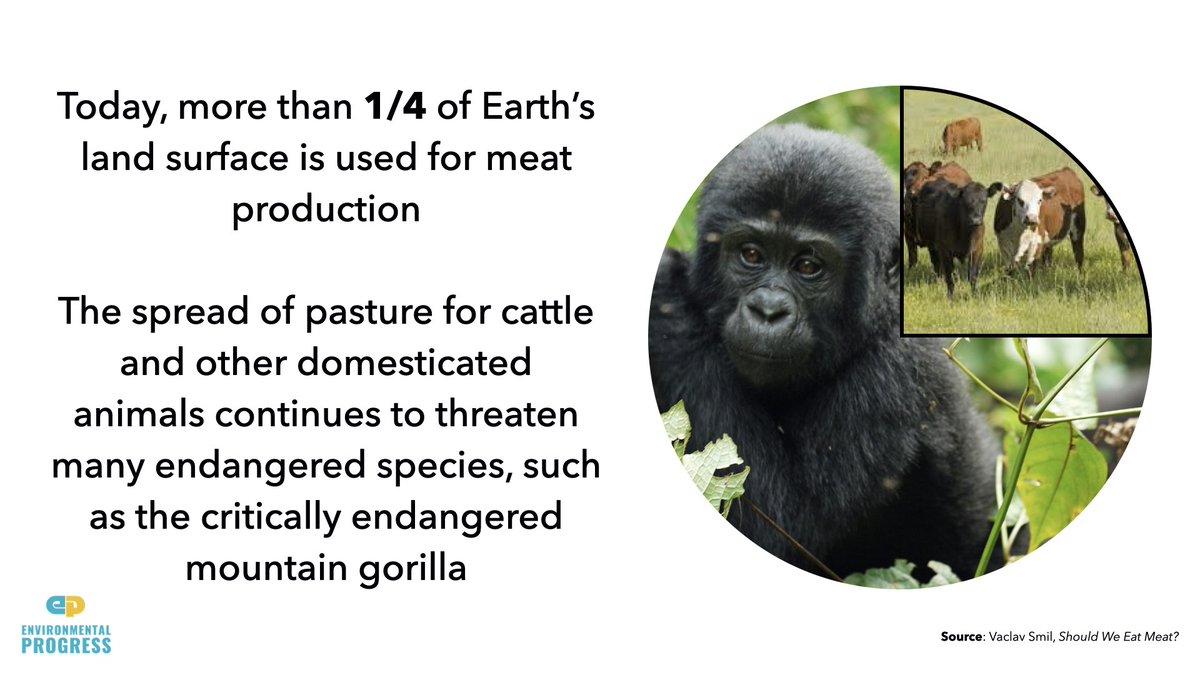
@RogerPielkeJr And we are eating too many fish, and failing to protect sea life
- 33% of global fish stocks are over-fished
- We have tripled the share of over-fished stocks since 1975
- Demand for fish will double by 2050
- Just 8% of oceans are protected



- 33% of global fish stocks are over-fished
- We have tripled the share of over-fished stocks since 1975
- Demand for fish will double by 2050
- Just 8% of oceans are protected
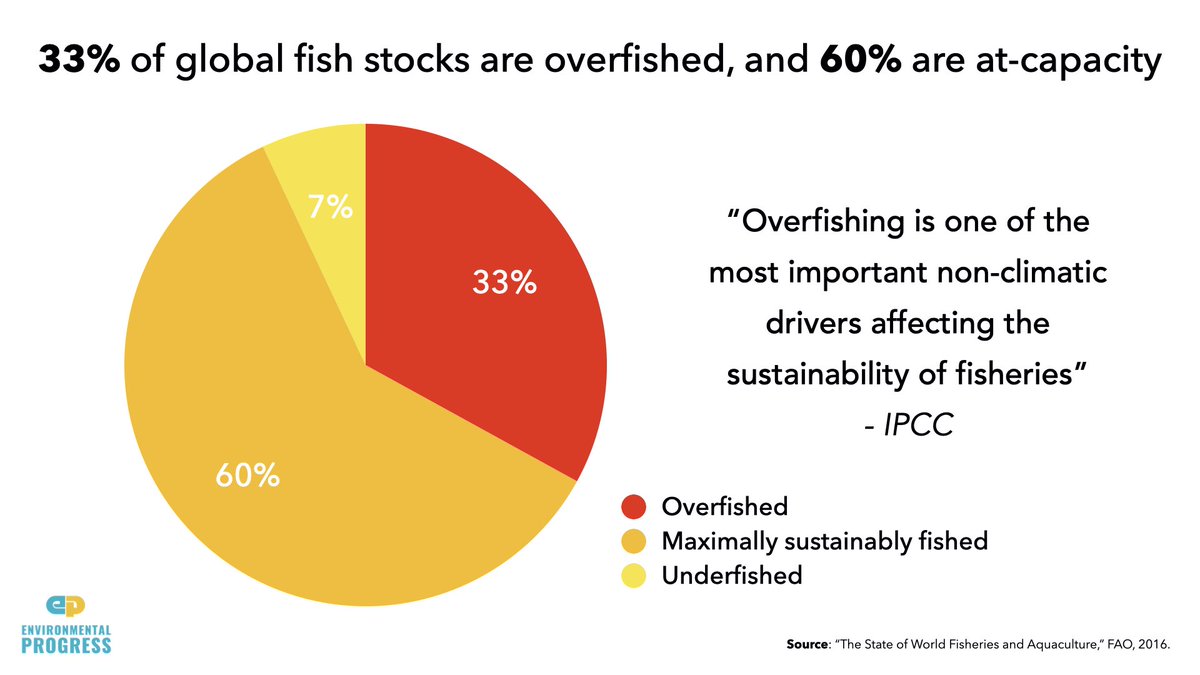
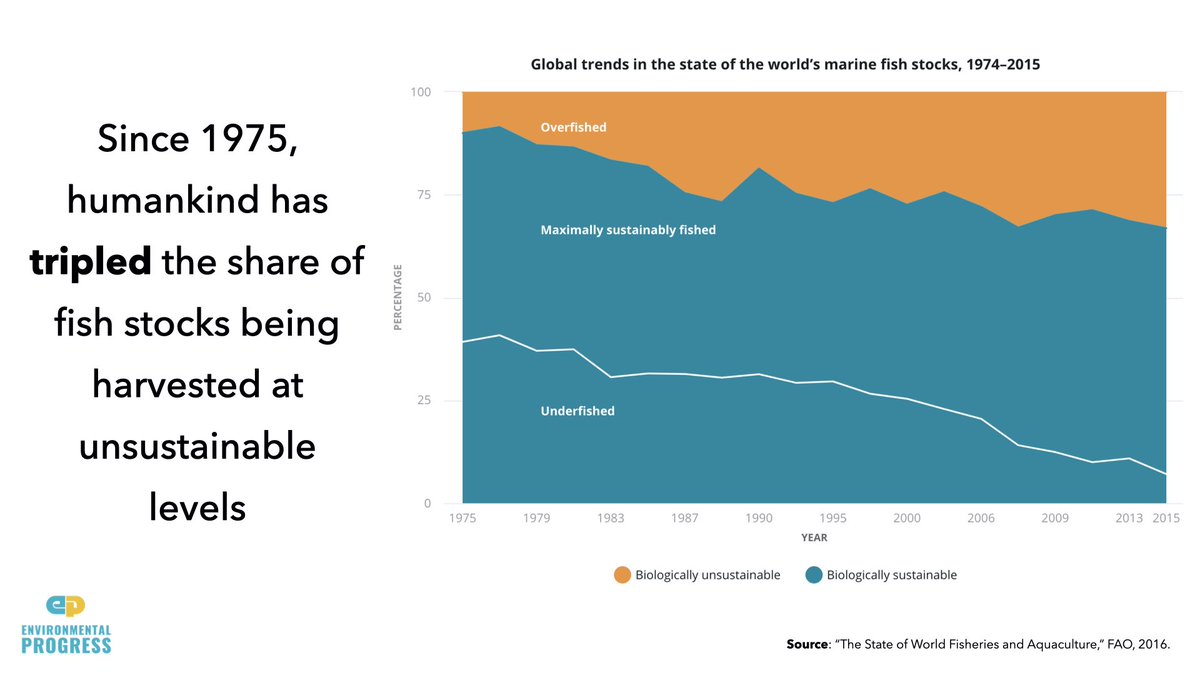
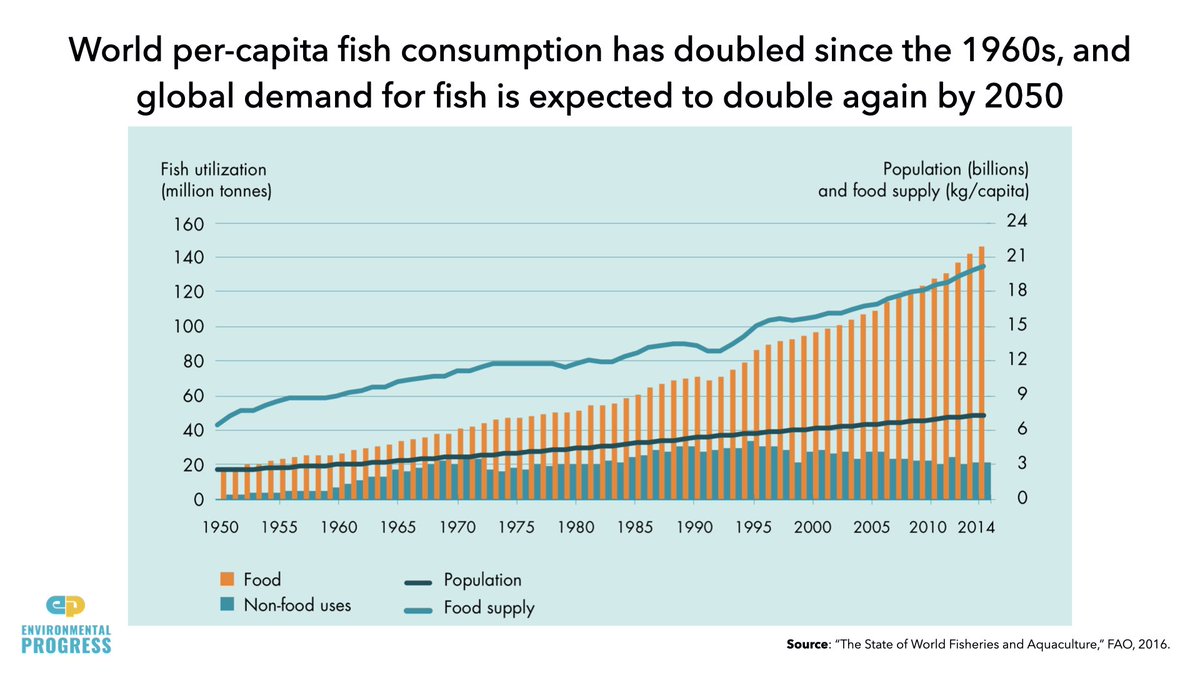
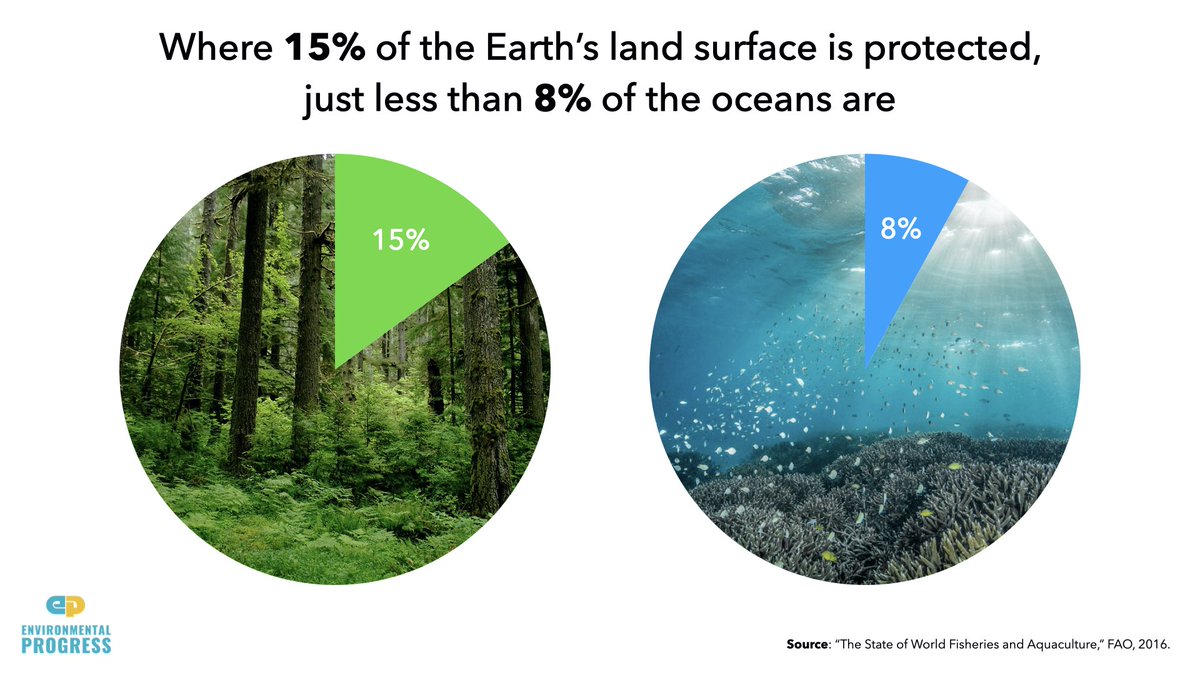
@RogerPielkeJr But many conservation trends are going in the right direction
- We kill 97% fewer whales than in 1960
- Deforestation in Brazil remains at decade-long low
- European & other developed nations are re-foresting
- There are 25x more protected areas today than existed in 1960



- We kill 97% fewer whales than in 1960
- Deforestation in Brazil remains at decade-long low
- European & other developed nations are re-foresting
- There are 25x more protected areas today than existed in 1960
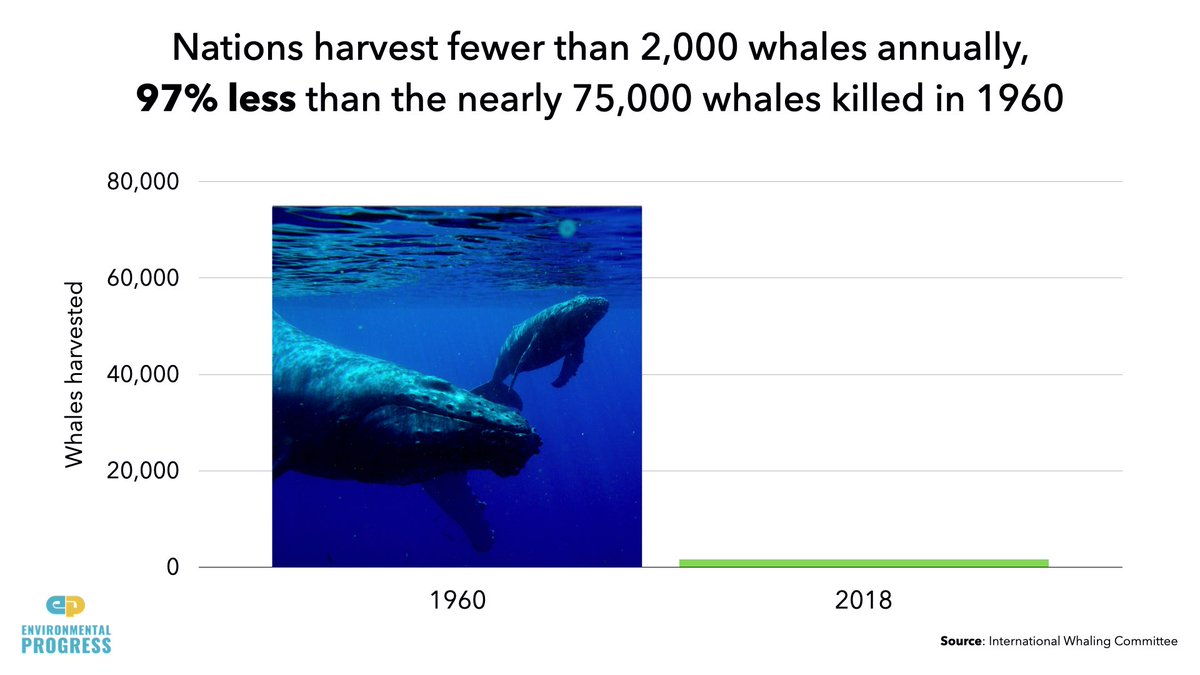
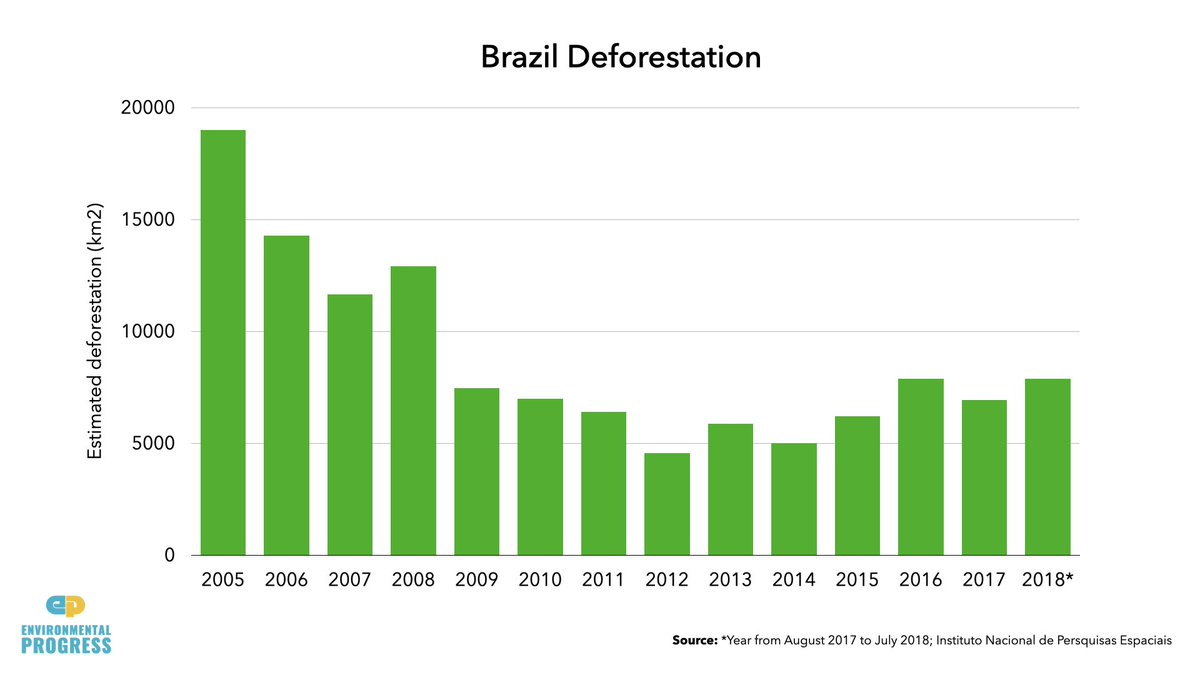
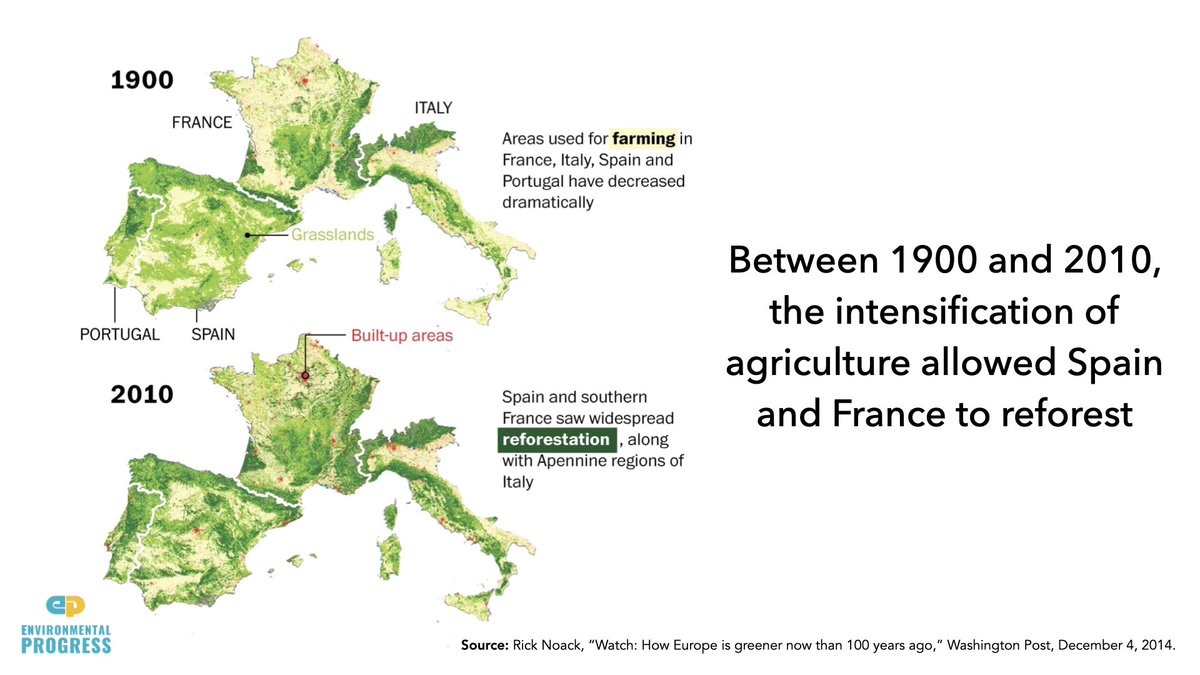
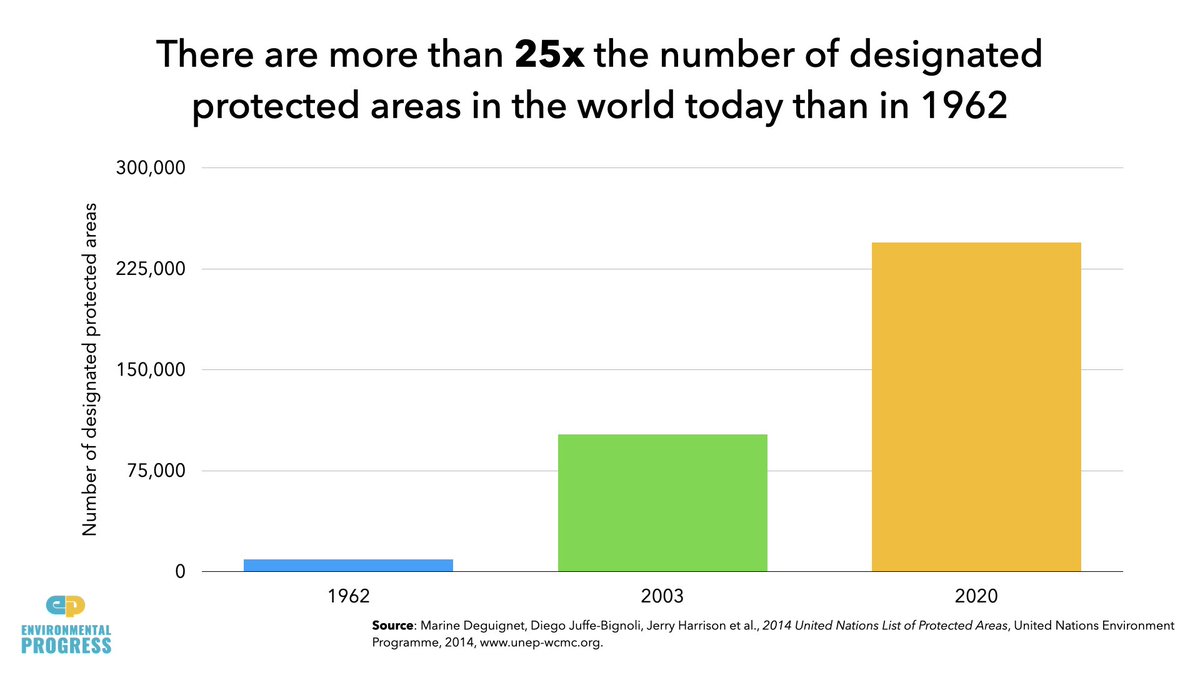
@RogerPielkeJr Humans are NOT causing a "sixth mass extinction," nor will we
- Just 0.8% of documented plant, animal, and insects have gone extinct since 1500
- Three-quarters of species are *not* threatened
- Species are far better at surviving at low numbers than we thought


- Just 0.8% of documented plant, animal, and insects have gone extinct since 1500
- Three-quarters of species are *not* threatened
- Species are far better at surviving at low numbers than we thought
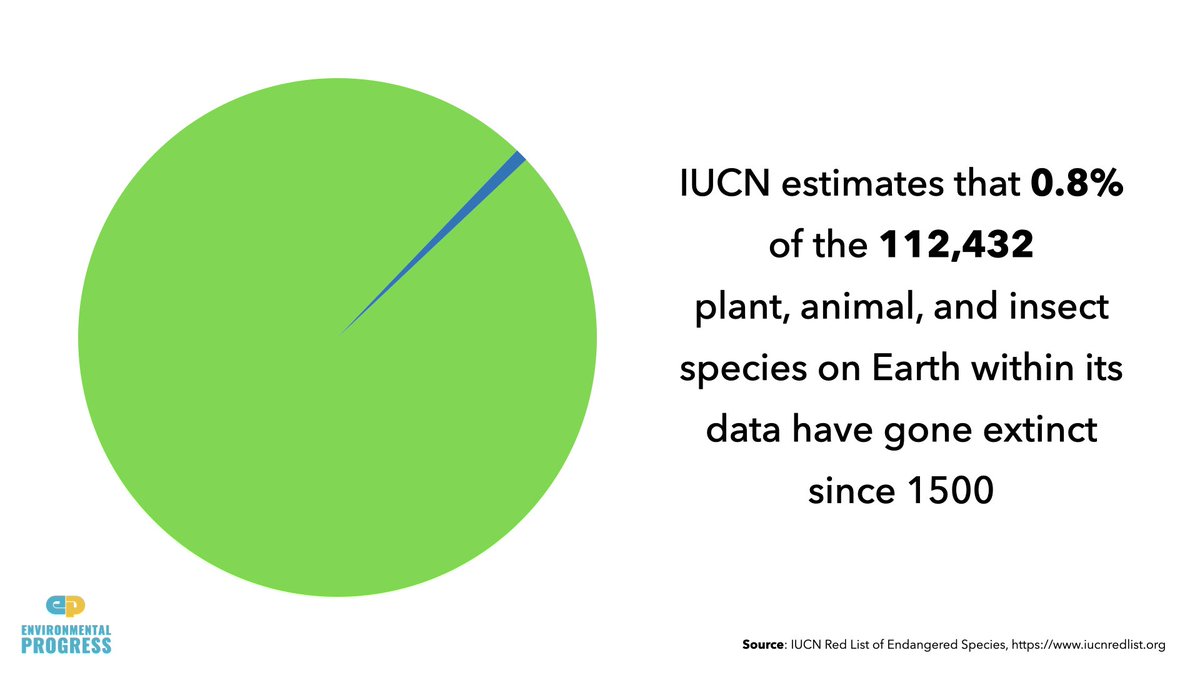

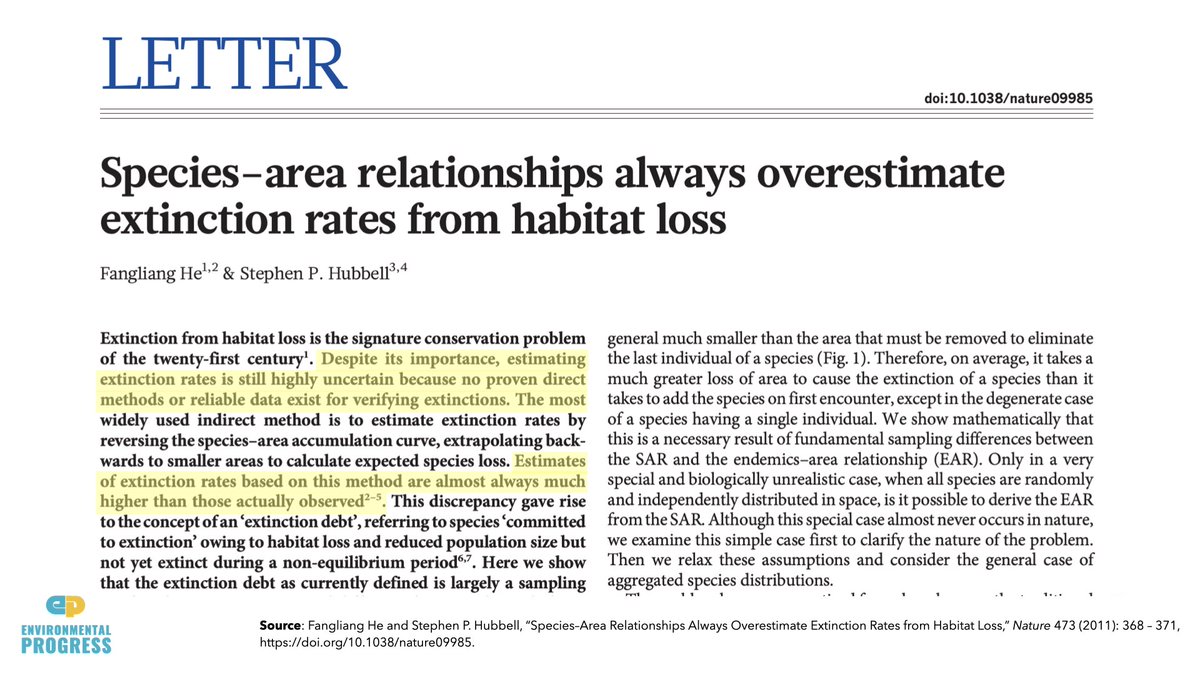
@RogerPielkeJr The reason we know humans won't cause a sixth mass extinction is because the land we use for meat & agriculture has peaked & is declining
- Since 2000, area humans use for pasture declined an area 80% the size of Alaska
- Total land for ag & wood fuel is at or near peak


- Since 2000, area humans use for pasture declined an area 80% the size of Alaska
- Total land for ag & wood fuel is at or near peak
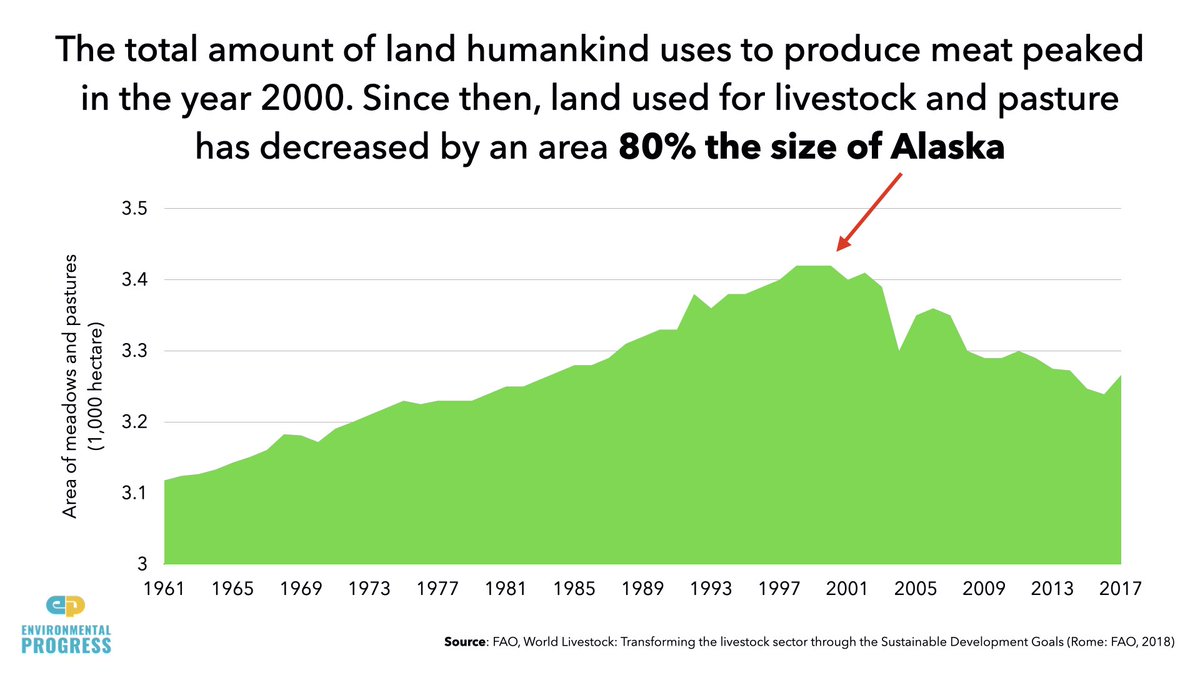

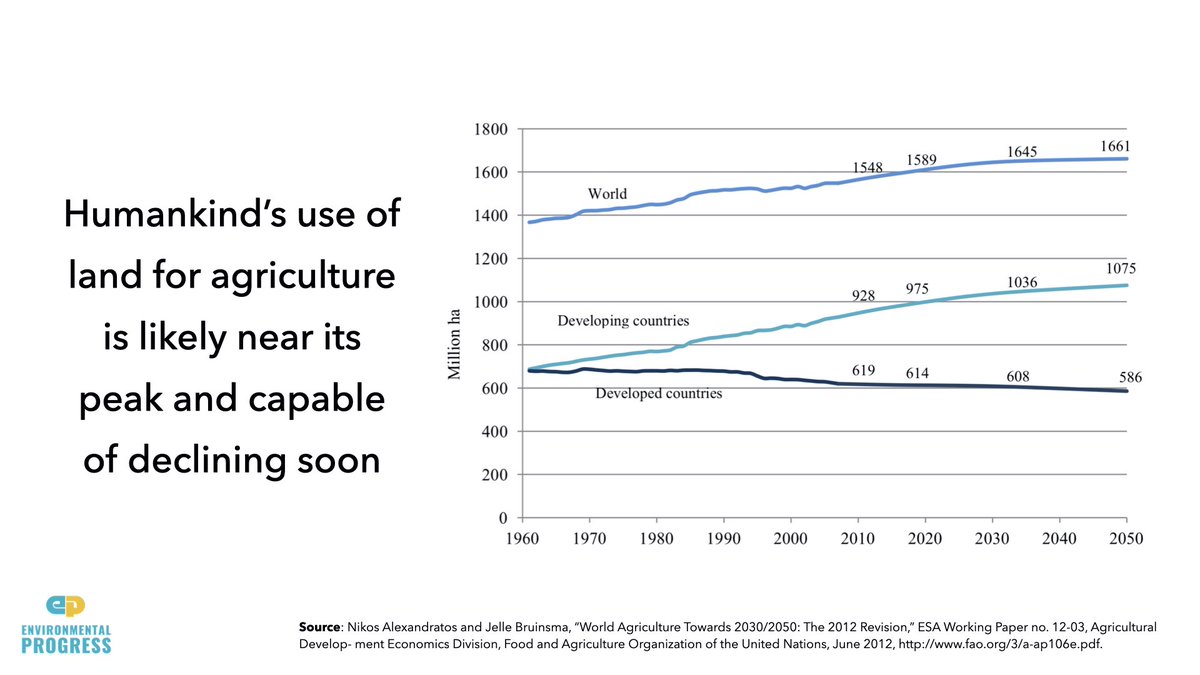
@RogerPielkeJr The carbon intensity of energy has been declining for 150 years, and global carbon emissions either have peaked or will peak soon, such as within the next decade, as we transition from coal to natural gas and nuclear 

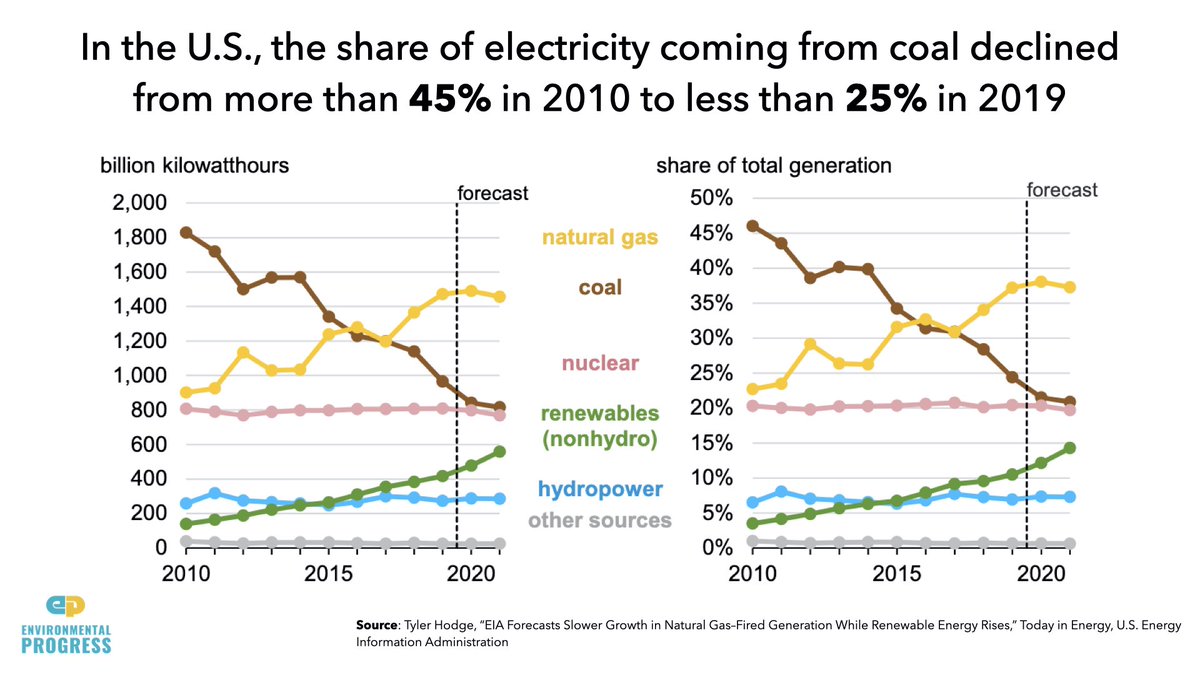
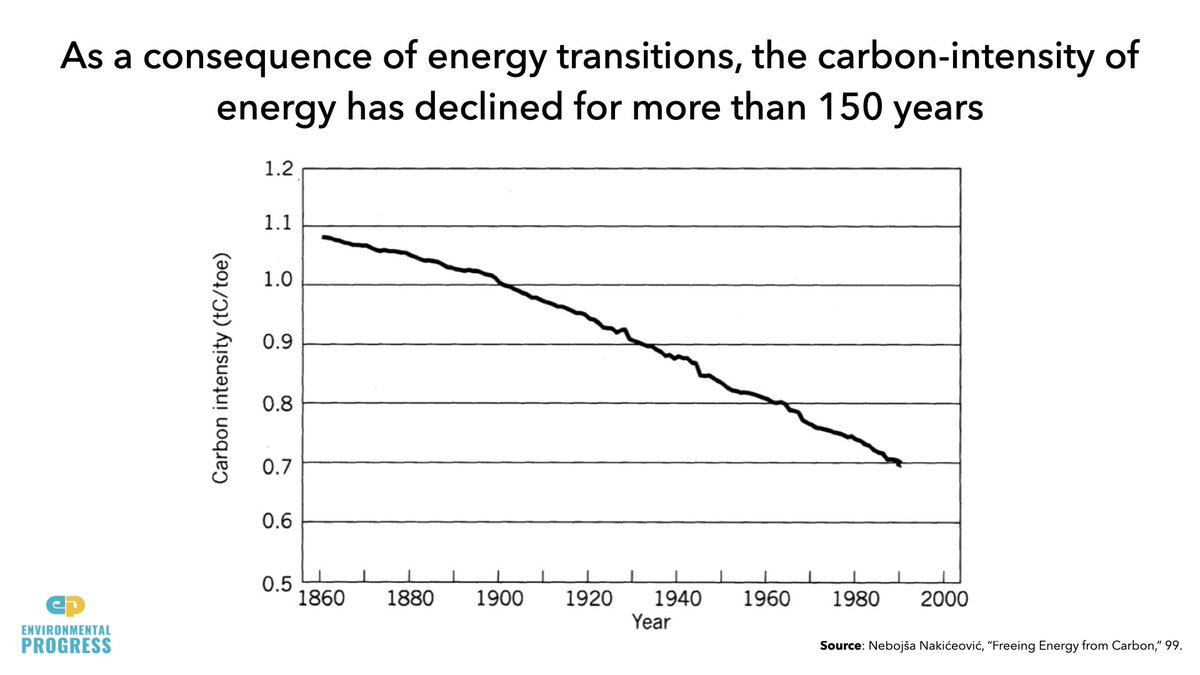
So please don't believe the hype. We have good reason to believe that we can and will leave our children a better natural environment than the one we inherited.
environmentalprogress.org/apocalypse-nev…
environmentalprogress.org/apocalypse-nev…
But shouldn't we exaggerate environmental problems to motivate action on them? No! We should tell the truth as a matter of principle, and because it is more inspiring, as the new study proves, than environmental alarmism.
Consider how much we are improving cancer treatments, reducing mortality by turning the disease into a chronic illness. We are doing the same thing with climate change. We should celebrate and build on those successes, not deny that they exist!
Imagine the reaction from cancer doctors if there were a movement that actively denied the progress we are making, and insisted that "billions will die" from cancer in the future.
Cancer doctors would be outraged at the slander against their work!
Cancer doctors would be outraged at the slander against their work!
The fact of the matter is that humans are doing remarkably well at reducing pollution and reducing land required for agriculture. 



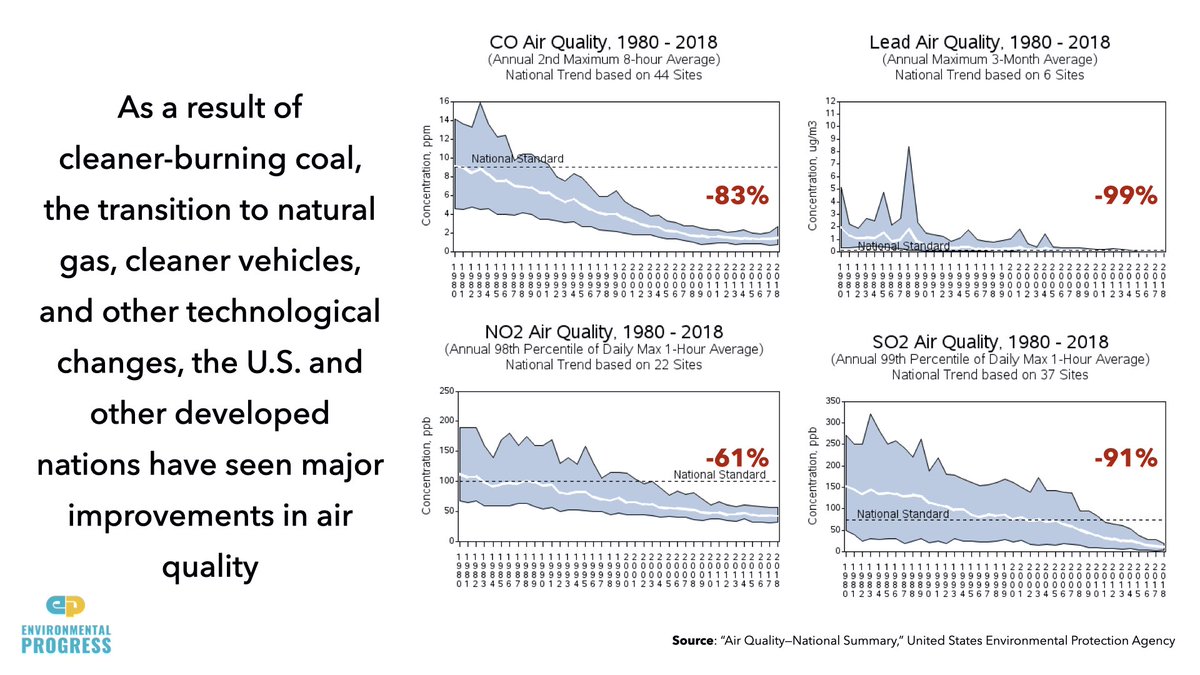
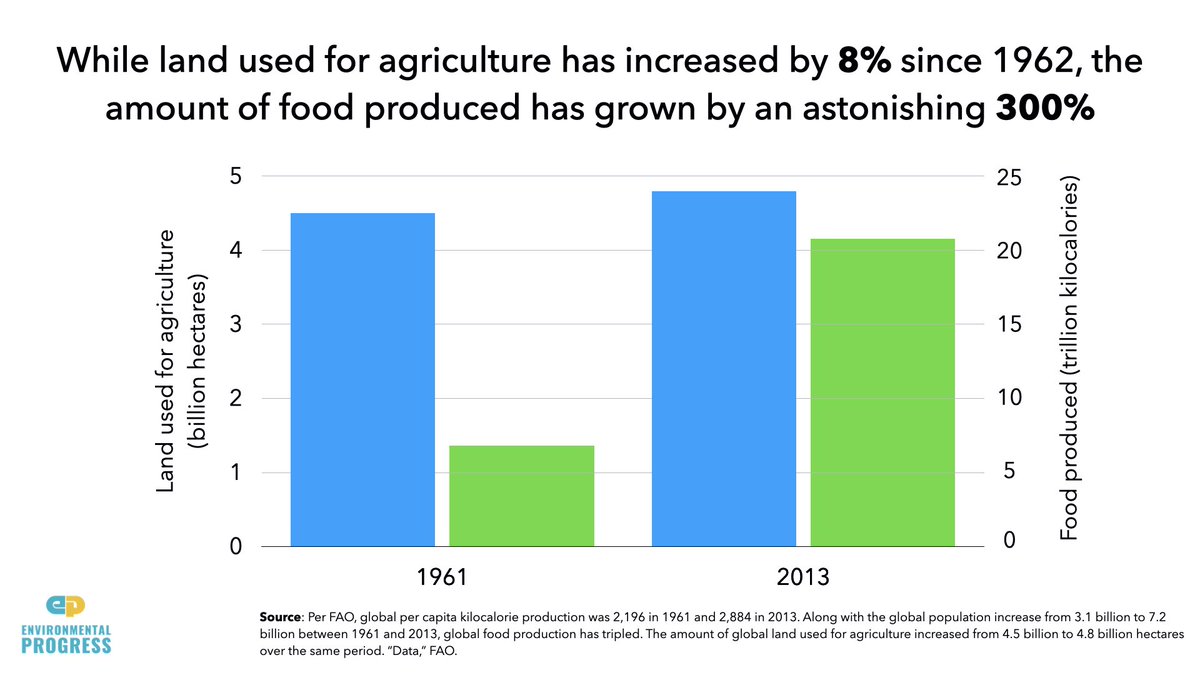
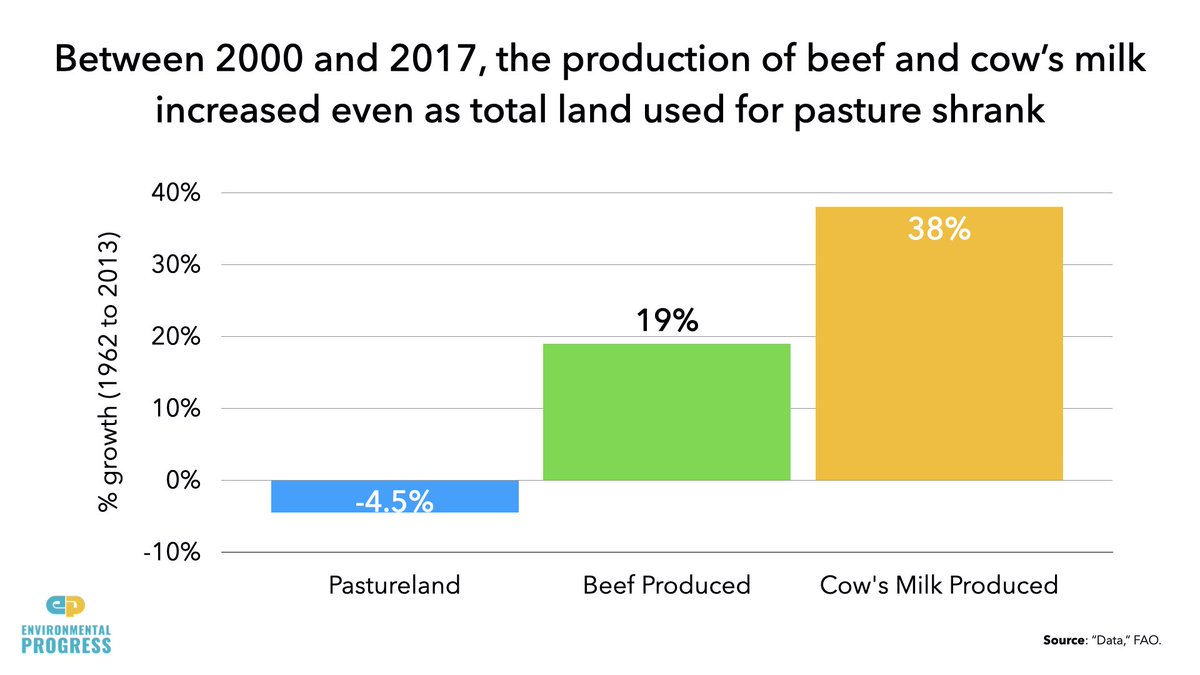
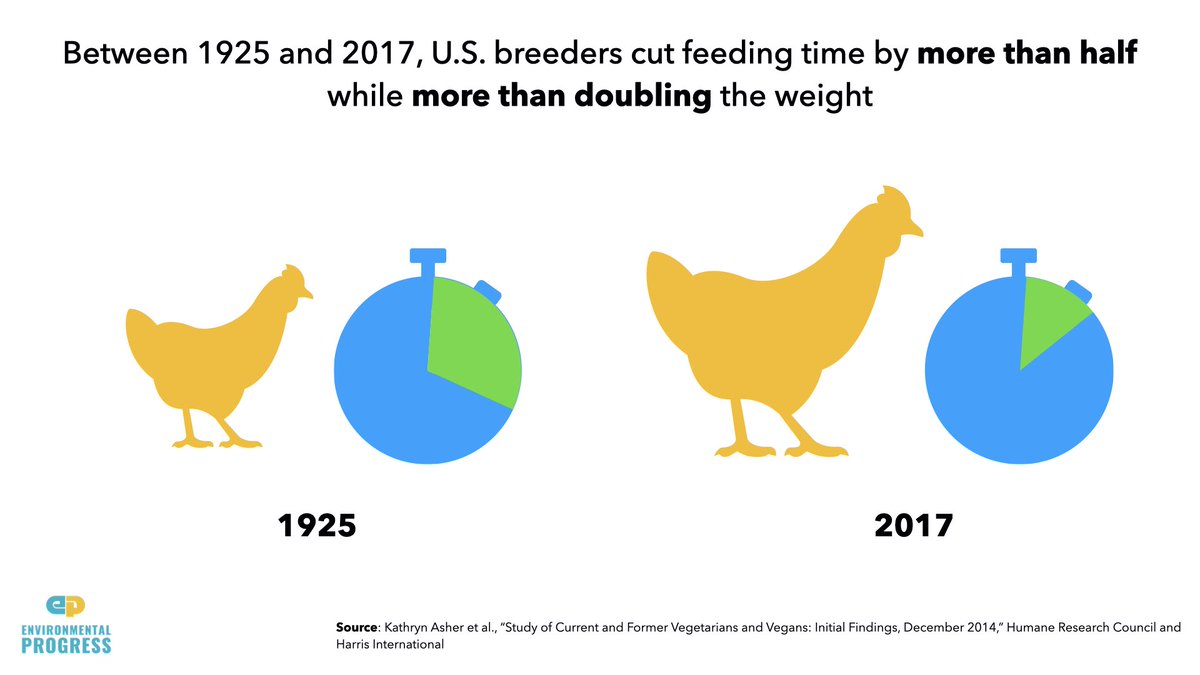
And we can do even better as those energetic and agricultural successes spread from the developed world to the developing world! 



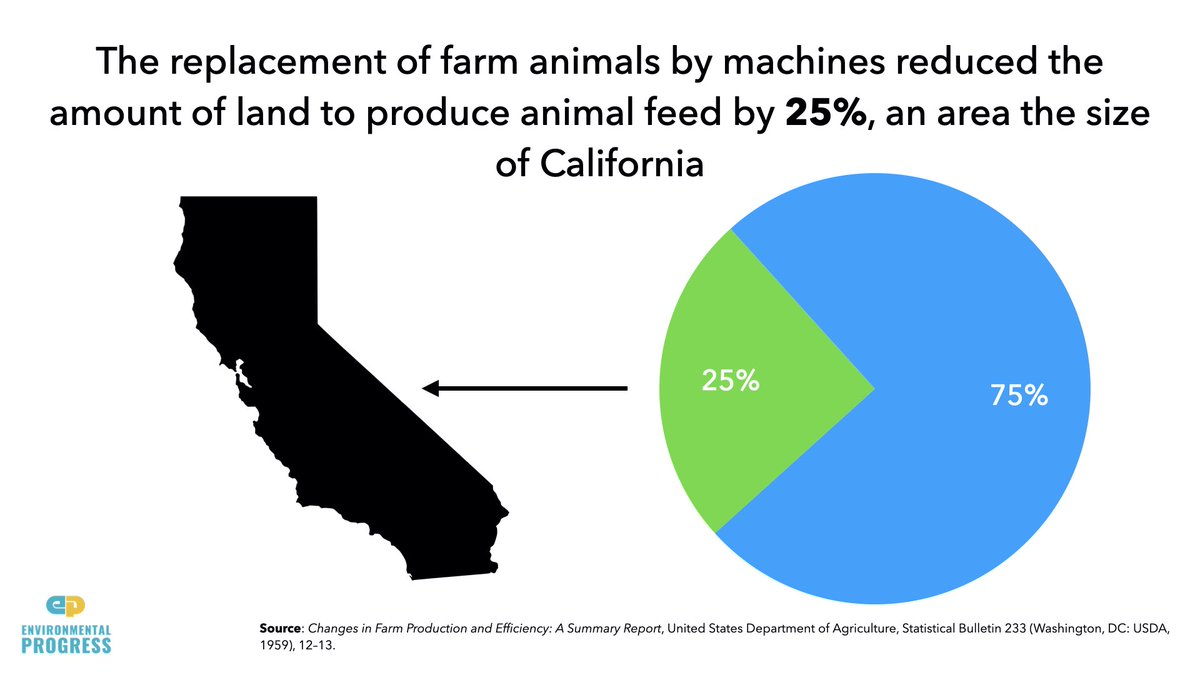
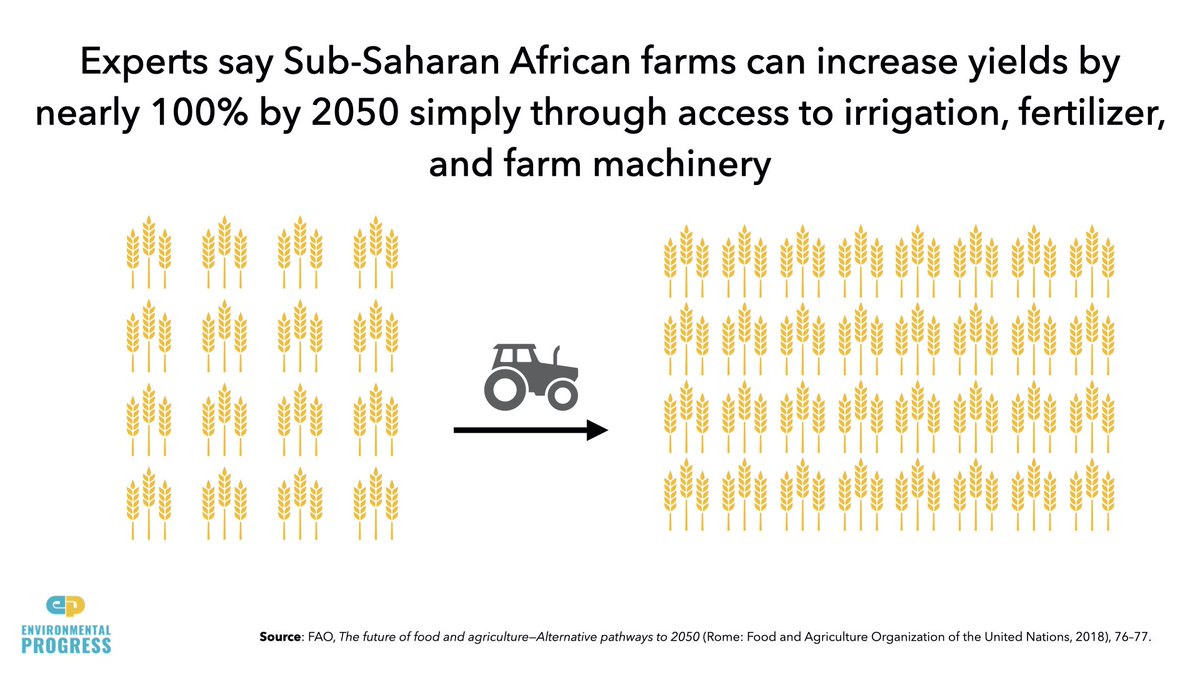
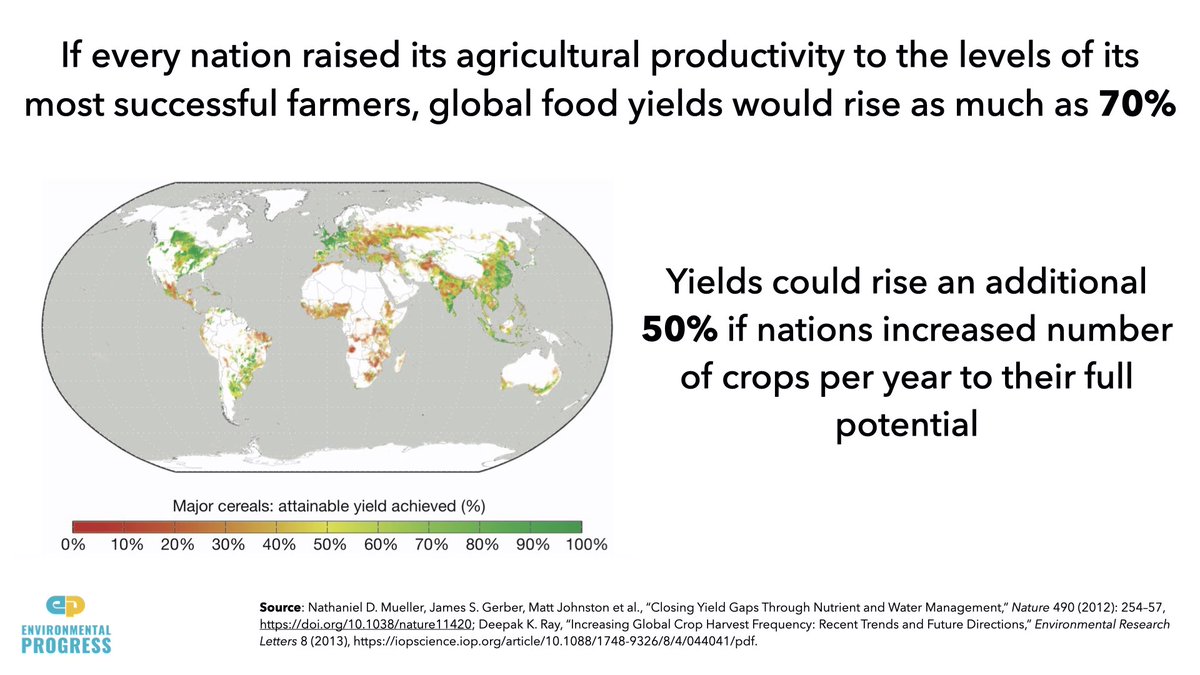
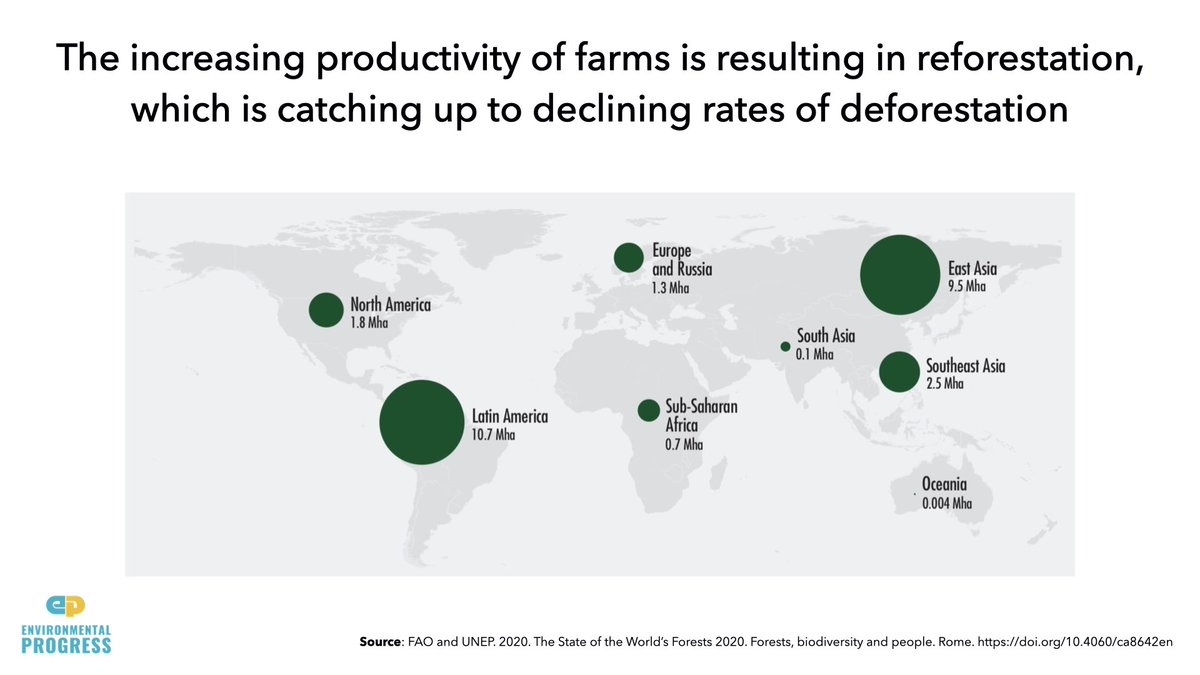
I decided to write my new book, Apocalypse Never, in part because I was bothered by the huge quantity of apocalyptic environmental misinformation that is contributing to the epidemic of anxiety and depression impacting young people.
amazon.com/Apocalypse-Nev…
amazon.com/Apocalypse-Nev…
Please consider sharing with worried friends and family this tweet thread, and the link below to all the graphs and charts of data that informed Apocalypse Never.
And don't give up hope! The future is bright!
❤️✊🙏
/END
environmentalprogress.org/apocalypse-nev…
And don't give up hope! The future is bright!
❤️✊🙏
/END
environmentalprogress.org/apocalypse-nev…
Many people think we are leaving our children a natural environment that is in a far worse shape than the one we inherited from our parents.
But on most environmental metrics things are getting better not worse.
My latest for @Forbes — please share!
forbes.com/sites/michaels…
But on most environmental metrics things are getting better not worse.
My latest for @Forbes — please share!
forbes.com/sites/michaels…
Here is updated hurricane data from the indomitable @RogerPielkeJr , one of the heroes of Apocalypse Never
https://twitter.com/RogerPielkeJr/status/1333434593836318720?s=20
• • •
Missing some Tweet in this thread? You can try to
force a refresh

